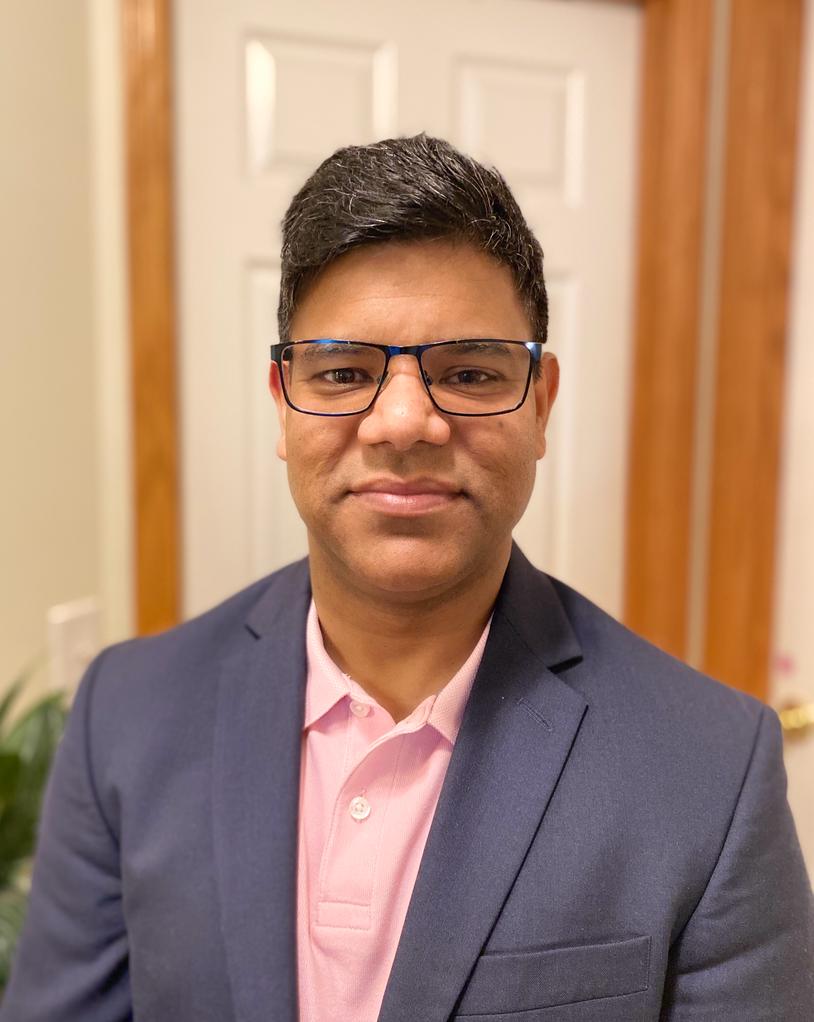Faculty


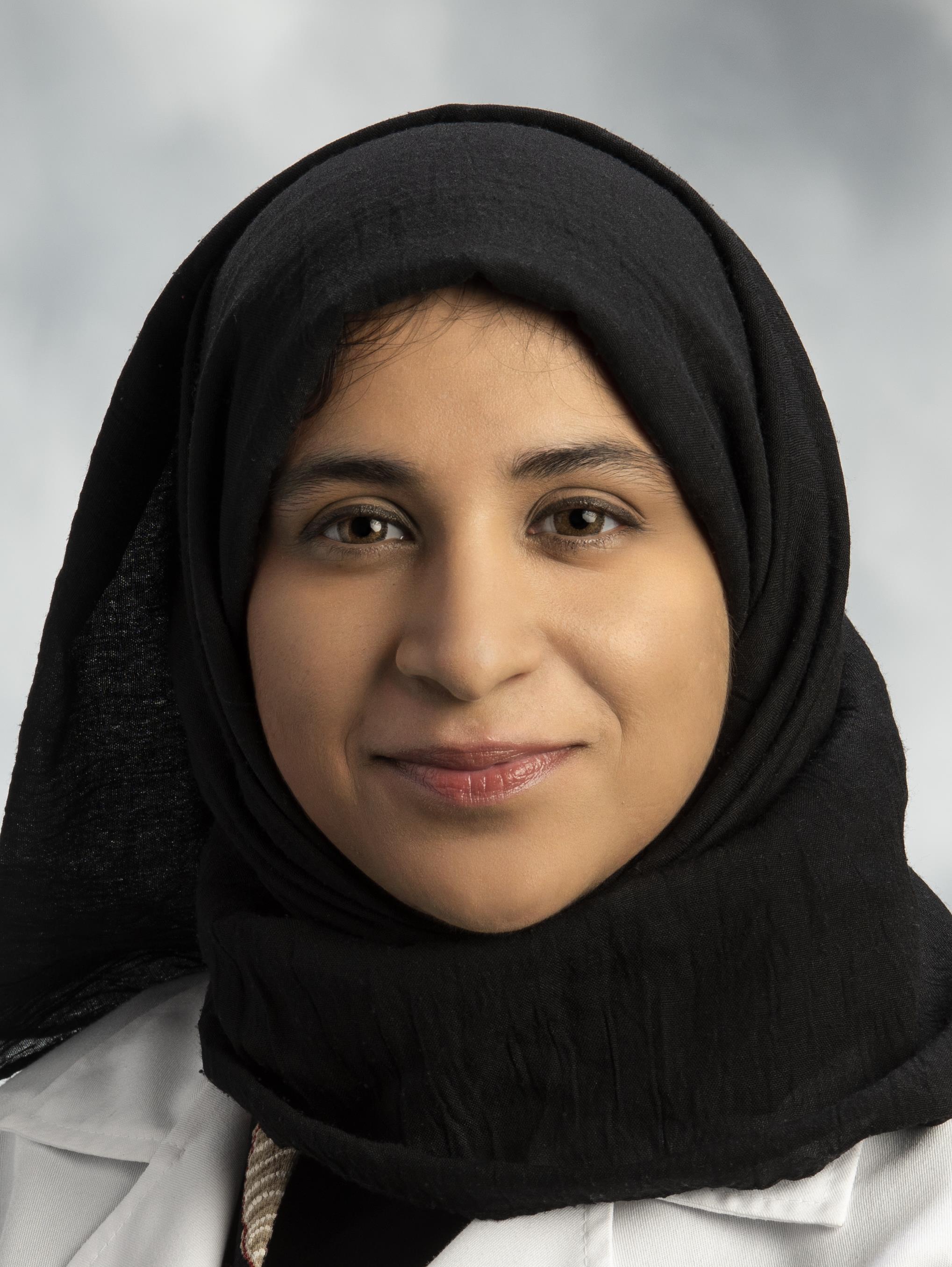
Research Summary
Research Interests:
- Cultural competency in medical education
- Brain injury/concussion
- Spina bifida
Publications:
Referred Chapters in Books:
“A model for change to evidence-based practice: feasibility of evidence-based protocols: Is Oman ready?” College of Medicine and Health Sciences, SQU. The data from this research has been used in one of the topics in the book “Manual of pediatric otolaryngology.” 2012
Abstract publications:
“Rehabilitation Post Lance Adams Syndrome: case report” Zainab Al Lawati, Dr. Amra Saric: abstract published in American Journal of Rehabilitation Medicine. 2019
“Factors That Mitigate A Useful Reflection In Identifying CanMed Competencies Among PM&R Residents: Qualitative Study”. Zainab Al Lawati, Dr. Gregory MacKinnon, PhD: abstract published in American Journal of Rehabilitation Medicine. 2019
“Stroke Secondary to Giant Cell Aortitis: Case Report”. Zainab Al Lawati, Dr. Amra Saric: abstract published in American Journal of Rehabilitation Medicine. 2018
Referred Journal Articles:
Lawati. Z. A., Tyroch, A., Rios-Tovar, A, (2022) Physiatrist’s Approach to Concussion. Volume 46 Number 1- 2022https://www.epcms.com/tmaimis/ElPaso/ElPasoPhys45.2.pdf
“Narrative Review: Dysphagia in Patients With Spasticity" by Uy, Madeleine; Al-Lawati, Zainab; Fairfull, Aubree; Mamun, Noushad. PM&R: The journal of injury, function and rehabilitation.
Novice and Expert Observer Accuracy of the Threshold Wheelchair Skill: A Pilot Eye-tracking Study
Lawati. Z. A., Tyroch, A., Aidinian. G, (2022) Physiatrists Approach to Pain Management Post Amputation. Volume 45 Number 1- 2022 https://www.epcms.com/tmaimis/ElPaso/ElPasoPhys45.1.pdf
Lawati. Z. A., Tyroch, A. (2021) The impact of early physiatry involvement in acute trauma care. The El Paso Physician. Volume 44 Number 4- 2021 https://www.epcms.com/tmaimis/ElPaso/ElPasoPhys44.4.pdf
Lawati. Z. A, (2021) Can SARS-CoV-2 Potentiates Early Parkinson’s Disease? Case Report. Case Report. Int Case Rep Jour 1(4):1-4. https://oceanvisionarypublications.com/journal/international-case-reports-journal/article/can-sars-cov-2-potentiates-early-parkinsons-disease-case-report
Lawati. Z. A, (2021) Rehabilitation Approach in Spastic Hemiparetic Cerebral Palsy Superimposed with Primary Central Nervous System (CNS)Vasculitis: Case Report. Int Case Rep Jour 1(3):1-5. https://oceanvisionarypublications.com/journal/international-case-reports-journal/article/rehabilitation-approach-in-spastic-hemiparetic-cerebral-palsy-superimposed
Lawati, Z. (2021). Early Physiatry Involvement in Acute Complex Pediatric Spinal Cord Injury:
Case Report. Open Access J Surg, 13. https://doi.org/10.19080/OAJS.2021.13.555861
Lawati, Z. A., & Smith, R. (2021). Rehabilitation approach in oropharyngeal cancer: Case report. SAGE Open Medical Case Reports, 9. https://doi.org/10.1177/2050313x211025450
Al Lawati, Z. A., Kirby, R. L., Smith, C., MacKenzie, D., Theriault, C. & Matheson, K. (2017). Getting a Manual Wheelchair Over a Threshold Using the Momentum Method: A Descriptive Study of Common Errors. Archives of Physical Medicine and Rehabilitation, 98(10), 2097–2099. doi:10.1016/j.apmr..2017.04.023
Bhargava, D., Al-Lawati, Z., Al-Abri, R., & Bhargava, K. (2012). Putting Research Findings into Clinical Practice: Feasibility of Integrated Evidence Based Care Pathways in Otorhinolaryngology Head and Neck Surgery at Sultan Qaboos University Hospital , Oman. Sultan Qaboos University Medical Journal, 12(2), 184-189. doi:10.12816/0003111
Peer-Reviewed Publications:
Nagpal AS, Al- Lawati ZJ, et al. Certification Qbank. American Academy of Physical Medicine and Rehabilitation. Rosemont, IL 2021
Presentations:
2022: Rehabilitation Stand on Failed Back Surgery Syndrome: Case Report
2022: A Collaborative approach in managing Ulnar neuropathy at the wrist: case report Poster presentation at El Paso research day
2022: Rehabilitation Approach in Frontotemporal Dementia: A Case Report Poster presentation at El Paso research day
2022 South Texas ACS Annual Meeting: HOW EARLY REHABILITATION IMPROVE RECOVERY AFTER TRAUMA?
“Factors That Mitigate A Useful Reflection In Identifying CanMed Competencies Among PM&R Residents: Qualitative Study”. Zainab Al Lawati, Dr. Gregory MacKinnon, PhD: oral presentation at the Medical Education Research and Innovation Showcase (MERIS), Halifax, Canada. 2019
“Factors That Mitigate A Useful Reflection In Identifying CanMed Competencies Among PM&R Residents: Qualitative Study”. Zainab Al Lawati, Dr. Gregory MacKinnon, PhD: poster presentation at the Canadian Association of Physical Medicine and Rehabilitation (CAPM&R), Ottawa, Canada. 2019
“Rehabilitation Post Lance Adams Syndrome: case report” Zainab Al Lawati, Dr. Amra Saric: poster presentation at the CAPM&R, Ottawa, Canada. 2019
“Value of intrathecal baclofen test dose in the work up of pump malfunction versus resistant spasticity in the use of intrathecal baclofen: case report”. Zainab Al Lawati, Dr. Sonja McVeigh, Dr. Christine Short: Poster presentation. 2018
“Stroke Secondary to Giant Cell Aortitis: Case Report”. Zainab Al Lawati, Dr. Amra Saric: Poster presentation. 2018
“The threshold wheelchair skill: an eye-tracking study of observer-rating and error-detection accuracy: 6th European Seating Symposium 2018: co-author: Poster presentation. 2018
“Observer rating and error detection accuracy of the threshold wheelchair skill: An eye-tracking study”. MacKenzie, D.E., Kirby, R.L., Smith, C., Al Lawati, Z., Drysdale, C.A. & Lee, E.A': co-other: poster presentation. 2017
“Internal carotid artery dissection after a chiropractor neck manipulation: case report”.
Presented a poster at the Canadian Association of Physical Medicine & Rehabilitation scientific conference in Niagara Falls, Ontario, Canada. 2017
“Moving an manual wheel chair (MWC) over an obstacle: a descriptive study of common errors”. Won best student research at Rehabilitation Engineering and Assistive Technology Society of North America (RESNA) and presented in Washington, USA. 2016
Fampridine can improve Walking in Persons with Multiple Sclerosis: case series. Clinical Neuroscience Research Day, Halifax NS. Podium presentation. 2014
“A model for change to evidence-based practice: feasibility of evidence-based protocols: Is Oman ready?” College of Medicine and Health Sciences, Sultan Qaboos University. It was presented in the15th national conference of Otolaryngology society as an oral presentation, Oman. 2012
“Influence of body mass index in Blood Pressure: results from bivariate genetic analysis for Oman family study.” College of Medicine and Health Sciences, Oman. It was presented in the 6th international scientific conference for medical students in the GCC countries as a poster presentation, UAE. 2011
Clinical Summary
Clinical Interests:
- Brain Injury
- Spasticity management
- Concussion and brain injury
- Amputation
- Neuromuscular medicine
Contact
Address
500 Boynton Health Service Bridge | 420 Delaware St SE, MMC 297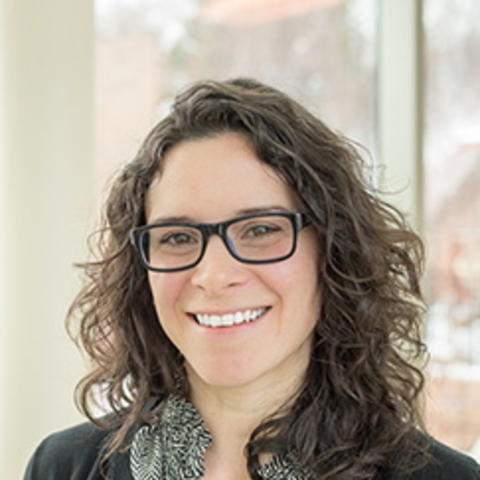
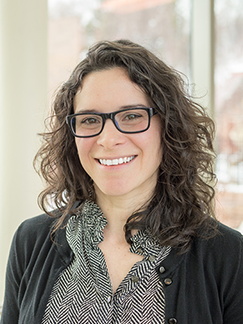




Research Summary
Dr. Balser’s research interests are currently developing his chosen scientific domain in the intersection of functional spinal cord stimulation and cognitive multi-sensory rehabilitation. He is also interested in developing research skills including data analysis through intuitive machine learning techniques and User Interface / User Experience process improvements for health care providers and patients.
Selected Publications
Hoover C, Schuerger W, Balser D, McCracken P, Murray TA, Morse L, Parr A, Samadani U, Netoff TI, Darrow DP. Neuromodulation Through Spinal Cord Stimulation Restores Ability to Voluntarily Cycle After Motor Complete Paraplegia. J Neurotrauma. 2023 Mar 22;. doi: 10.1089/neu.2022.0322. [Epub ahead of print] PubMed PMID: 36719784.
Darrow DP, Balser DY, Freeman D, Pelrine E, Krassioukov A, Phillips A, Netoff T, Parr A, Samadani U. Effect of epidural spinal cord stimulation after chronic spinal cord injury on volitional movement and cardiovascular function: study protocol for the phase II open label controlled E-STAND trial. BMJ Open. 2022 Jul 18;12(7):e059126. doi: 10.1136/bmjopen-2021-059126. PubMed PMID: 35851008; PubMed Central PMCID: PMC9297213.
Darrow D, Balser D, Netoff TI, Krassioukov A, Phillips A, Parr A, Samadani U. Epidural Spinal Cord Stimulation Facilitates Immediate Restoration of Dormant Motor and Autonomic Supraspinal Pathways after Chronic Neurologically Complete Spinal Cord Injury. J Neurotrauma. 2019 Aug 1;36(15):2325-2336. doi: 10.1089/neu.2018.6006. Epub 2019 Mar 6. PubMed PMID: 30667299; PubMed Central PMCID: PMC6648195.
Clinical Summary
Dr. Balser’s clinical interests include evidence-based practices that meaningfully improve the independence of people who have sustained a severe but remediable loss of function. Group-based solution brainstorming, empowering patients through education and social support, and pragmatically simplifying necessary medical care are his general philosophical guidelines, and his specific concrete interests are aggressive rehabilitation in spinal cord injury medicine.


Bio
Expertise
- Gait-training and evaluation
- osteoclast biology
Professional Associations
- American Society for Bone and Mineral Research
- Association of Academic Physiatrists
Research Summary
Research Funding Grants
- R01 AR064793-01A1 (Battaglino)
04/01/2015 – 03/31/2020
NIH/NIAMS
"Regulation of gastric and osteoclast acidification by Snx10"
The specific aims to be addressed in this project are: 1) Determine the cellular mechanisms by which Snx10 regulates osteoclast function. 2) Determine the role of osteoclastic expression of Snx10 on bone homeostasis in vivo. 3) Determine the role of gastric expression of Snx10 on bone homeostasis in vivo.
Role: PI - W81XWH-14-SCIRP-CTA (Morse)
09/01/2015-08/31/19
Department of Defense
"Effects of Ekso-assisted gait training on Bone Health and Quality of Life: A Randomized Clinical Trial"
The goals of this project are to 1) determine whether exoskeleton-assisted gait training increases bone strength in the paralyzed lower extremity and 2) determine whether exoskeleton-assisted gait training improves quality of life after SCI. Secondarily, to determine whether gait training improves the following related outcomes and mediators of quality of life: mood, pain, and cortical activity of related emotional networks in the brain.
Role: Site PI
Publications
2019
- Morse L, Troy K, Fang Y, Nguyen N, Battaglino R, Goldstein, Richard, Gupta R, Taylor J. Combination Therapy with Zoledronic Acid and FES-row Training Mitigates Bone Loss in the Paralyzed Legs: Results of a Randomized Comparative Clinical Trial. Submitted to JBMR PLUS.
- Battaglino R, NguyenN, MorseLR. Bisphosphonate use is associated with lower levels of the bone-derived hormone osteocalcin in men with spinal cord injury. Ricardo A., Nguyen,Leslie R. Submitted to Osteoporosis International.
2018
- Morse LR, Coker J, Battaglino R. Statins and Bone Health: A Mini Review. Actual. Osteol 14(1) :31:35, 2018
- Battaglino R, Jha P, Liu W, Morse LR. FKBP12: a partner of Snx10 required for vesicular trafficking in osteoclasts. Submitted, Journal Cellular Biochemistry.
- Liu W, Morse LR, Picotto G, Sultana F, Odgren P, Battaglino R. Snx10 and PIKfyve are Required for Lysosome Formation in Osteoclasts, Submitted, Journal of Bone and Mineral Research.
- Park AJ, Battaglino RA, Nguyen N, Morse LR. Associations between lean mass and leptin in men with chronic spinal cord injury: results from the FRASCI-muscle study. Accepted, PLOS One. 2018.
- Hirai K, FurushoH, KawashimaN, XuS, de BeerMC, Battaglino R, Van DykeT, StashenkoP, SasakiH. SAA contributes to the chronicity of periapical lesions via TLR2 and TLR4. Accepted, Journal of Dental Research. 2018.
2017
- Rivoira M, Rodríguez V, Picotto G, Battaglino R, Tolosa de Talamoni N. Naringin prevents bone loss in a rat model of type 1 Diabetes mellitus. Arch Biochem Biophys. 2018 Jan 1;637:56-63. doi: 10.1016/j.abb.2017.12.001. Epub 2017 Dec 5. PMID: 29208404
- Silva LAB, Azevedo LU, Consolaro A, Barnett F, Xu Y, Battaglino RA, Cañadas PS, de Oliveira KMH, Silva RAB. Novel endodontic sealers induce cell cytotoxicity and apoptosis in a dose-dependent behavior and favorable response in mice subcutaneous tissue. Clin Oral Investig. 2017 Dec 21(9):2851-2861. doi: 10.1007/s00784-017-2087-1. Epub 2017 Mar 9. PMID: 28281012
2016
- Morse LR, Nguyen N, Battaglino RA, Guarino AJ, Gagnon D, Zafonte R, Garshick E. Wheelchair use and Lipophilic Statin Medications May Influence Bone Loss in Chronic Spinal Cord Injury: Findings from the FRASCI Study. Osteoporos Int. 2016 Jul 13. [Epub ahead of print]. PMID: 27412619
http://dy3uq8jh2v.search.serialssolutions.com/?sid=Entrez:PubMed&id=pmid:27412619 - Sasaki H, Hirai K, Men Martins C, Furusho H, Battaglino R, Hashimoto K. Interrelationship between Periapical Lesion and Systemic Metabolic Disorders. Curr Pharm Des. 2016 Feb [Epub ahead of print]. PMID: 26881444
http://dy3uq8jh2v.search.serialssolutions.com/?sid=Entrez:PubMed&id=pmid:26881444
2015
- Guo F, He H, Fu ZC, Huang S, Chen T, Papasian CJ, Morse LR, Xu Y, Battaglino RA, Yang XF, Jiang Z, Xin HB, Fu M. Adipocyte-derived PAMM suppresses macrophage inflammation by inhibiting MAPK signalling. Biochem J. 2015 Dec 15;472(3):309-18. doi: 10.1042/BJ20150019. Epub 2015 Oct 5. PMID: 26438880
http://dy3uq8jh2v.search.serialssolutions.com/?sid=Entrez:PubMed&id=pmid:26438880 - Xu Y; Morse LR; Bezerra da Silva R; Wang D, Battaglino RA. A Short Report: PAMM, a Novel Antioxidant Protein, Induced by Oxidative Stress. Redox Biol. 2015 Dec;6:446-453. PMID: 26402163.
http://dy3uq8jh2v.search.serialssolutions.com/?sid=Entrez:PubMed&id=pmid:26402163 - Ye L, Morse LR, Zhang L, Sasaki H, Mills J, Odgren P, Sibbel G, Zamarioli A, Battaglino RA. Osteopetrorickets due to Snx10 deficiency in mice results from both failed osteoclast activity and loss of gastric acid-dependent calcium absorption. PLoS Genet. 2015 Mar 26;11(3):e1005057.
http://dy3uq8jh2v.search.serialssolutions.com/?sid=Entrez:PubMed&id=pmid:25811986
2014
- Tan C, Battaglino R, Doherty A, Gupta R, Lazzari A, Garshick E, Zafonte R, Morse LR. (2014) Adiponectin is Associated with Bone Strength and Fracture History in Paralyzed Men with Spinal Cord Injury. Osteoporos Int. 2014 Nov;25(11):2599-607.
http://dy3uq8jh2v.search.serialssolutions.com/?sid=Entrez:PubMed&id=pmid:24980185
2013
- Liang Ye, Leslie R Morse, Ricardo A Battaglino. Snx10: a newly identified locus associated with human osteopetrosis. IBMS BoneKEy (2013) 10, Article number: 421
http://dy3uq8jh2v.search.serialssolutions.com/?sid=Entrez:PubMed&id=pmid:25419438 - Saltzman JW, Battaglino R, Stott H, Morse LR. Neurotoxic or Neuroprotective? Current Controversies in SCI-Induced Autoimmunity. Curr Phys Med Rehabil Reports. 2013 Sep;1(3). PMID: 24416711
http://dy3uq8jh2v.search.serialssolutions.com/?sid=Entrez:PubMed&id=pmid:24416711 - Choi E, Carruthers K, Zhang L, Thomas N, Battaglino RA, Morse LR, Widrick JJ. Concurrent muscle and bone deterioration in a murine model of cancer cachexia. Physiol Rep. 2013 Nov;1(6): PMID: 24400146
http://dy3uq8jh2v.search.serialssolutions.com/?sid=Entrez:PubMed&id=pmid:24400146 - Doherty AL, Battaglino RA, Donovan J, Gagnon D, Lazzari AA, Garshick E, Zafonte R, Morse LR. Adiponectin is a candidate biomarker of lower extremity bone density in men with chronic spinal cord injury. J Bone Miner Res. 2013 Jun 20. PMID: 23787489
http://dy3uq8jh2v.search.serialssolutions.com/?sid=Entrez:PubMed&id=pmid:23787489 - Tan CO, Battaglino RA, Morse LR. Spinal Cord Injury and Osteoporosis: Causes, Mechanisms, and Rehabilitation Strategies. Int J Phys Med Rehabil. 2013;1. pii: 127. PMID: 25419534
http://dy3uq8jh2v.search.serialssolutions.com/?sid=Entrez:PubMed&id=pmid:25419534 - Zamarioli A, Battaglino RA, Morse LR, Sudhakar S, Maranho DA, Okubo R, Volpon JB, Shimano AC. Standing frame and electrical stimulation therapies partially preserve bone strength in a rodent model of acute spinal cord injury. Am J Phys Med Rehabil. 2013 May;92(5):402-10 PMID: 23478455
http://dy3uq8jh2v.search.serialssolutions.com/?sid=Entrez:PubMed&id=pmid:23478455 - Lucisano MP, Nelson-Filho P, Morse L, Battaglino R, Watanabe PC, da Silva RA, da Silva LA. Radiodensitometric and DXA analyses for the measurement of bone mineral density after systemic alendronate therapy. Braz Oral Res. 2013 May-Jun;27(3):252-7. PMID: 23739782
http://dy3uq8jh2v.search.serialssolutions.com/?sid=Entrez:PubMed&id=pmid:23739782 - Saltzman JW, Battaglino R, Salles L, Jha P, Sudhakar S, Garshick E, Stott HL, Zafonte R, Morse LR. (2013). B-cell maturation antigen, a proliferation-inducing ligand, and B-cell activation factor are candidate mediators of spinal cord injury-induced autoimmunity. J. Neurotruama 30(6): 434-440.
http://dy3uq8jh2v.search.serialssolutions.com/?sid=Entrez:PubMed&id=pmid:23088438 - Morse LR, Sudhakar S, Tun C, Lazzari A, Garshick E, Zafonte R, Battaglino RA. (2013) Sclerostin: A candidate biomarker of SCI-induced osteoporosis. Osteoporos Int. 24(3): 961-968.
http://dy3uq8jh2v.search.serialssolutions.com/?sid=Entrez:PubMed&id=pmid:22801952
2012
- Battaglino RA, Lazzari AA, Garshick E, Morse LR. Spinal cord injury-induced osteoporosis: pathogenesis and emerging therapies. Curr Osteoporos Rep. 2012 Dec;10(4):278-85. PMID: 22983921
http://dy3uq8jh2v.search.serialssolutions.com/?sid=Entrez:PubMed&id=pmid:22983921 - Nelson-Filho P, Lucisano MP, Da Silva RA, Da Silva RS, Serra MC, Gerlach RF, Neto FC, Carneiro ZA, Zamarioli A, Morse L, Battaglino R. Systemically alendronate was incorporated into dental tissues but did not cause morphological or mechanical changes in rats teeth. Microsc Res Tech. 2012 Sep;75(9):1265-71. doi: 10.1002/jemt.22059. PMID: 22508272
http://dy3uq8jh2v.search.serialssolutions.com/?sid=Entrez:PubMed&id=pmid:22508272 - Goy DP, Gorosito E, Costa HS, Mortarino P, Pedemonte NA, Toledo J, Mansur HS, Pereira MM, Battaglino R, Feldman S. Hybrid matrix grafts to favor tissue regeneration in rabbit femur bone lesions. Open Biomed Eng J. 2012;6:85-91. Epub 2012 Jul 10. PMID: 22848334
http://dy3uq8jh2v.search.serialssolutions.com/?sid=Entrez:PubMed&id=pmid:22848334 - Battaglino RA, Sudhakar S, Lazzari A, Garshick E, Zafonte R, Morse LR. (2012). Circulating sclerostin is elevated in short-term and reduced in long-term SCI. Bone. May 7. [Epub ahead of print]. PMID: 22575440
http://dy3uq8jh2v.search.serialssolutions.com/?sid=Entrez:PubMed&id=pmid:22575440
2011
- Morse LR, Xu Y, Solomon B, Boyle L, Yoganathan S, Stashenko P, Battaglino RA. Severe Spinal Cord Injury Causes Immediate Multi-cellular Dysfunction at the Chondro-Osseous Junction. Transl Stroke Res. 2011 Dec 1;2(4):643-50. doi: 10.1007/s12975-011-0118-9. PMID: 22368723
http://dy3uq8jh2v.search.serialssolutions.com/?sid=Entrez:PubMed&id=pmid:22368723 - Morse LR, Sudhakar S, Danilack V, Tun C, Lazzari A, Gagnon DR, Garshick E, Battaglino RA. Association between sclerostin and bone density in chronic SCI. J Bone Miner Res. 2011 Oct 17. doi: 10.1002/jbmr.546. [Epub ahead of print] PMID: 22006831
http://dy3uq8jh2v.search.serialssolutions.com/?sid=Entrez:PubMed&id=pmid:22006831 - Zhu Cuihua, Morse LR, Battaglino R. (2011) SNX10 is required for osteoclast formation and resorption activity. SNX10 is required for osteoclast formation and resorption activity. J Cell Biochem. 2011 Dec 15. doi: 10.1002/jcb.24029. [Epub ahead of print]. PMID: 22174188
http://dy3uq8jh2v.search.serialssolutions.com/?sid=Entrez:PubMed&id=pmid:22174188
2010
- Huang X, Morse LR, Xu Y, Zahradka J, Sychrová H, Stashenko P, Fan F, Battaglino R. (2010) Mutational analysis of NHAcc/NHA2 in Saccharomyces cerevisiae. Biochim. Biophys. Acta 1800(12): 1241-1247. PMCID: PMC2967667
http://dy3uq8jh2v.search.serialssolutions.com/?sid=Entrez:PubMed&id=pmid:20713131 - Sasaki H, Suzuki N, Alshwaimi E, Xu Y, Morse LR, Battaglino RA, Stashenko P. 18-beta-Glycyrrhetinic Acid Inhibits Periodontitis Via Glucocorticoid-independent NF-kB Inactivation In IL-10 Deficient Mice. J Periodontal Res. 2010 Dec;45(6):757-63. PMID: 20682015
http://dy3uq8jh2v.search.serialssolutions.com/?sid=Entrez:PubMed&id=pmid:20682015 - Xu Y, Morse LR, da Silva R, Odgren PR, Sasaki H, Stashenko P, Battaglino RA. PAMM: A redox regulatory protein that modulates osteoclast differentiation. Antioxid Redox Signal 2010 Jul 1;13(1):27-37. Antioxid Redox Signal. 2010 Jul 1;13(1):27-37. PMID: 19951071
http://dy3uq8jh2v.search.serialssolutions.com/?sid=Entrez:PubMed&id=pmid:19951071
2009
- Xu Y, Young M, Battaglino RA, Morse LR, Fontana CR, Pagonis TC, Kent R, Stashenko P, Soukos NS. Endodontic antiomicrobial photodynamic therapy: Assessment of safety on fibroblasts and osteoblasts in vitro. J Endod. 2009 Nov;35(11):1567-72. PMID: 19840649
http://dy3uq8jh2v.search.serialssolutions.com/?sid=Entrez:PubMed&id=pmid:19840649 - Morse LR, Lazzari A, Battaglino RA, Stolzmann K, Matthess K, Gagnon D, Davis S, Garshick E. Dual energy X-Ray absorptiometry of the distal femur may be more reliable than the proximal tibia in spinal cord injury. Arch Phys Med Rehabil 2009; 90:827-831. PMID: 19406303
http://dy3uq8jh2v.search.serialssolutions.com/?sid=Entrez:PubMed&id=pmid:19406303 - Morse LR, Giangregori L, Battaglino RA, Holland R, Craven BC, Stolzmann K, Lazzari A, Sabharwal S, Garshick E. VA Based Survey of Osteoporosis Management in Spinal Cord Injury. PMR. 2009 Mar:1(3):240-244. PMID: 19627901
http://dy3uq8jh2v.search.serialssolutions.com/?sid=Entrez:PubMed&id=pmid:19627901 - Morse LR, Geller A, Battaglino RA, Stolzmann K, Matthess K, Lazzari A, Garshick E. Barriers to Providing Dual Energy X-ray Absorptiometry Services to Individuals with Spinal Cord Injury. Am J Phys Med Rehabil. 2009 Jan;88(1):57-60. PMID: 18824888
http://dy3uq8jh2v.search.serialssolutions.com/?sid=Entrez:PubMed&id=pmid:18824888 - Morse LR, Battaglino RA, Stolzmann K, Hallett L, Waddimba A, Gagnon D, Lazzari A, Garshick E. Osteoporotic fractures and hospitalization risk in chronic spinal cord injury. Osteoporos Int. 2009 Mar;20(3):385-92. Epub 2008 Jun 26. PMID: 18581033
http://dy3uq8jh2v.search.serialssolutions.com/?sid=Entrez:PubMed&id=pmid:18581033
2008
- Morse LR, Nguyen HP, Jain N, Williams S, Tun CG, Battaglino RA, Stashenko P, Garshick E. (2008) Age and motor score predict osteoprotegerin level in chronic SCI. J. Musculoskelet. Neuronatal Interact. 8(1): 50-57. PMID: 18398265
http://dy3uq8jh2v.search.serialssolutions.com/?sid=Entrez:PubMed&id=pmid:18398265 - Morse L, Teng YD, Pham L, Newton K, Du Y, Liao WL, Kohler T, Müller R, Graves D, Stashenko P, Battaglino R. (2008) Spinal cord injury causes rapid osteoclastic resorption and growth plate abnormalities in growing rats. (SCI-induced bone loss in growing rats) Osteoporos Int. 19(3): 645-652. PMID: 17987335
http://dy3uq8jh2v.search.serialssolutions.com/?sid=Entrez:PubMed&id=pmid:17987335 - Battaglino RA, Pham L, Morse LR, Vokes M, Sharma A, Odgren PR, Yang M, Sasaki H, Stashenko P. (2008) NHA-oc/NHA2: A mitochondrial cation-proton antiporter selectively expressed in osteoclasts. Bone 42(1): 180-192. PMID: 17988971
http://dy3uq8jh2v.search.serialssolutions.com/?sid=Entrez:PubMed&id=pmid:17988971
2007
- Pham L, Purcell P, Morse LR, Stashenko P, Battaglino RA. (2007) Expression Analysis of nha-oc/NHA2: a Novel Osteoclast-Specific Gene. Gene Expr. Patterns 7(8): 846-851. PMID: 17698421
http://dy3uq8jh2v.search.serialssolutions.com/?sid=Entrez:PubMed&id=pmid:17698421 - Schulze-Späte U, Battaglino R, Fu J, Sharma A, Vokes M, Stashenko P. (2007) Brn3 Transcription factors control terminal osteoclastogenesis. J. Cell Biochem. 102(1): 1-12. PMID: 17668438
http://dy3uq8jh2v.search.serialssolutions.com/?sid=Entrez:PubMed&id=pmid:17668438
2006
- Battaglino R, Vokes M, Spate U, Sharma A, Graves D, Kohler T, Muller R, Yoganathan S, Stashenko P. (2006) Fluoxetine treatment increases trabecular bone formation in mice. J. Cell. Biochem.100(6): 1387-1394. PMID: 17041947
http://dy3uq8jh2v.search.serialssolutions.com/?sid=Entrez:PubMed&id=pmid:17041947
2005
- Gyurko R, Shoji H, Battaglino RA, Boustany G, Gibson FC 3rd, Genco CA, Stashenko P, Van Dyke TE. Inducible nitric oxide synthase mediates bone development and P. gingivalis-induced alveolar bone loss. Bone 2005; Mar; 36(3):472-9. PMID: 15777672
http://dy3uq8jh2v.search.serialssolutions.com/?sid=Entrez:PubMed&id=pmid:15777672
2004
- Battaglino R, Fu J, Späte U, Ersoy U, Joe M, Sedaghat L, Stashenko P. Serotonin regulates osteoclasts differentiation via its transporter. Journal of Bone and Mineral Research 2004; 19(9):1420-1431. PMID: 15312242
http://dy3uq8jh2v.search.serialssolutions.com/?sid=Entrez:PubMed&id=pmid:15312242 - Okamatsu Y, Kim D, Battaglino R, Sasaki H, Späte U, Stashenko P. MIP-1g promotes receptor activator of NF-?B ligand-induced osteoclast formation and survival. Journal of Immunology 2004; 173(3):2084-2090. PMID: 15265944
http://www.jimmunol.org/content/173/3/2084
2002
- Battaglino R, Kim D, Fu J, Vaage B, Fu XY, Stashenko P. c-myc is required for osteoclast differentiation. Journal of Bone and Mineral Research 2002; 17(5):763-773. PMID: 12009006
http://dy3uq8jh2v.search.serialssolutions.com/?sid=Entrez:PubMed&id=pmid:12009006
1998
- Xiong J, Battaglino R, Stuhlmann H. Large-scale screening for developmental genes in embryonic stem cells and embryoid bodies using retroviral entrapment vectors. Developmental Dynamics 1998; 212(2):181-197. PMID: 9626494
http://dy3uq8jh2v.search.serialssolutions.com/?sid=Entrez:PubMed&id=pmid:9626494 - Battaglino R. A Genetic Screen for Developmentally Regulated Genes in Mice (Ph.D. dissertation, 1998). University of New York.
1991
- Battaglino RA, Huergo M, Pilosof AMR, Bartholomai GB. (1991) Culture requirements for the production of protease by Aspergilius-oryzae in solid-state fermentation. Appl. Microbiol. Biotechnol. 35(3):292-296.
Contact
Address
500 Boynton420 Delaware St SE
Minneapolis, MN 55455-0341

Bio
Dr. Belgrade is a pain physician at the Minneapolis VA Health Care System and Medical Director for Pain Telehealth at the VA. He also is a staff physician at the Minnesota Head & Neck Pain Clinic. He is an associate professor in the Department of Rehabilitation Medicine and Adjunct Professor of Neurology at the University of Minnesota Medical School. He is board-certified in neurology and pain management. Dr. Belgrade has served as medical director of pain management clinics and programs in the Twin Cities metropolitan area for over 25 years. He has participated in the development of national guidelines for the management of neuropathic pain and chronic pain and has published widely on a broad spectrum of pain topics. He has been a speaker and educator on behalf of the Minnesota Board of Medical Practice on the topic of appropriate prescribing practices for pain management and is a consultant for the Health Professional Services Program which serves health care professionals who have substance use issues. Dr. Belgrade developed the DIRE Score, a tool used internationally to help clinicians determine who is an appropriate candidate for long-term opioid prescribing for chronic pain.
Research Summary
Education Headache Opioid assessment of risk
Clinical Summary
Inpatient pain management; Cancer pain; Neuropathic pain; Headache





Research Summary
Dr. Durfee’s research and professional interests include the design of medical devices, rehabilitation engineering, exoskeletons and wearable robots, compact hydraulic systems, product design and design education.
Lab
Human/Machine Design Lab
ME Research Areas
Biosystems & Bioengineering
Sensing & Controls
ME Impact Areas
Human Health
Robotics & Mobility

Bio
Dr. Courtney Eskridge completed her PhD (with a concentration in neuropsychology) and an MS in clinical psychology at the Rosalind Franklin University of Medicine and Science in North Chicago, IL, and a postdoctoral fellowship in clinical neuropsychology at Northwestern Medicine Feinberg School of Medicine in Chicago. She earned a BS is psychology and biology at the University of Wisconsin, Eau Claire.
Professional Associations
- International Neuropsychological Society
- American Academy of Clinical Neuropsychology
- American Psychological Association
- American Psychological Association
- Association for Psychological Science
- American Society for Pharmacology and Experimental Therapeutics
Research Summary
Dr. Eskridge has done research into cognition in patients with primary brain tumors, used exploratory and confirmatory analysis to model the factor structure of a battery of cognitive and neurophysiology measures in a healthy population to determine their fit across psychological disorders, investigated the impact of antipsychotics on cognitive flexibility and stability in first episode psychosis, and explored verb processing in amyotrophic lateral sclerosis.
Publications
- Eskridge, C.L.M., Hochberger, W.C., Lencer, R., Reilly, J.L., Keedy, S., Keefe, R.S.E., Pearlson, G.D., Keshavan, M.S., Tamminga, C.A., Sweeney, J.A., & Hill, S.K. (2021). Deficits in generalized cognitive ability, visual sensorimotor function, and inhibitory control represent discrete domains of neurobehavioral deficit in psychotic disorders. Schizophrenia Research, 236, 54-60.
- Nelson, C.L.M., Amsbaugh, H.M., Reilly, J.L., Rosen, C., Marvin, R.W., Ragozzino, M.E., Bishop, J.R., Sweeney, J.A. & Hill, S.K. (2018). Beneficial and adverse effects of antipsychotic medication on cognitive flexibility are related to COMT genotype in first episode psychosis. Schizophrenia Research, 202, 212-216
- Hochberger, W.C., Eskridge, C.L.M., Reilly, J.L., Rubin, L.H., Bishop, J.R., Gershon, E.S., Tamminga, C.A., Pearlson, G.D., Clementz, B.A., Keshavan, M.S., Sweeney, J.A. & Hill, S.K. (2020) Catechol-omethyltransferase genotype moderates cognitive set shifting in patients with psychotic disorders.Schizophrenia Research, in press
- Hochberger, W.C., Hill, S.K., Nelson, C.L.M., Reilly, J.L., Keefe, R.S.E., Pearlson, G.D., Keshavan, M.S., Tamminga, C.A., Clementz, B.A. & Sweeney, J.A. (2016). Unitary construct of generalized cognitive ability underlying BACS performance across psychotic disorders and in their first-degree relatives. Schizophrenia Research, 170(1), 156-161.
Book Chapters
- Guidotti Breting, L., Nelson, C., and Cothran, T. (2016). Psychosocial characteristics of acquired brain injury. In D. Hong (Ed.), Acquired Brain Injury: Clinical Essentials for Neurotrauma and Rehabilitation Professionals. New York: Springer Publishing.
Published Abstracts
- Eskridge, C.L.M., Hochberger, W., Gotra, M., Hill, S.K. (2019). Latent factor structure of a neuropsychological and neurophysiological battery across psychotic disorders. Presented at the International Neuropsychological Society Conference, Denver, CO
- Nelson, C.L.M., Amsbaugh, H., Bishop, J., Reilly, J.L., Hill, S.K., & Sweeney, J. (2017). Mixture of beneficial and adverse effects of antipsychotics on cognitive flexibility and stability are related to catechol-omethyltransferase in first episode psychosis. Presented at American Academy of Clinical Neuropsychology Conference, Boston, MA
- Nelson, C.L.M., Hochberger, W., Hill, S.K. (2015). Exploratory factor analysis reveals single factor structure of the Brief Assessment of Cognition in Schizophrenia. Presented at the National Academy of Neuropsychology Conference. Austin, TX
- Carrathers, T., Amsbaugh, H., Roseberry, J. E., Nelson, C., Buchholz, A., & Hill, S. K. (2015). Performance for paced and unpaced serial order recall in schizophrenia. Presented at the American Academy of Clinical Neuropsychology Conference, San Francisco, CA.
Posters
- Nelson, C.L.M., Ruiz, L., Benson, L.M., Guidotti-Breting, L.M., Geary, E.K., & Sweet, J. (2016) Utility of the dot counting test in an ADHD sample. Presented at the Midwest Neuropsychology Group Conference, Evanston, IL
- Ruiz, L., Nelson, C.L.M., Benson, L.M., Guidott-Breting, L.M., Geary, E.K., & Sweet, J. (2016). Investigating the role of insight in predicting the relation between depressed mood and memory impairment. Presented at the Midwest Neuropsychology Group Conference, Evanston, IL
- Carrathers, T., Axelrod, J., Roseberry, J. E., Nelson, C., & Hill, S. K. (2015). Exploring updating and single item maintenance performance in schizophrenia. Presented at the Midwest Neuropsychology Group Conference, Akron, OH
- Nelson, C.L.M. Effect of Methotrexate on the anxiety-like behavior of rats. (2012) Presented at 21st Annual Ronald E. McNair National Research Conference, Lake Geneva, WI.; the 20th Annual UWEC Student Research Day, Eau Claire, WI
- Johnson, A.R., Nelson, C.L.M., Jewett, D. (2012). Effects of amphetamine in rats trained to discriminate between 22 and 2h food deprivations. Presented at: Society for Neuroscience. New Orleans; ASPET Experimental Biology Conference. San Diego, CA; 20th Annual UWEC Student Research Day, Eau Claire, WI
- Johnson, A.R, DeLapp, C.M., Dobbe, J.E., Nelson, C.L.M., Gomer, B., Van Asten, R.M., & Franklin, B.R. (2013). Developing baseline performance in an animal model of learning and memory. Presented at 21st Annual UWEC Student Research Day, Eau Claire, WI
- Dobbe, J.E., Vargo, J.P., Johnson, A.R., Hoida, E.J., Van Asten, R.M., Donovan, B.A., Reed, K.A., Nelson, C.L.M. & Gomer, B. (2013). Effect of chlorpromazine on rats trained to discriminate between 22 and 2h food deprivations. Presented at 21st Annual UWEC Student Research Day, Eau Claire, WI.







Bio
Awards & Recognition
- University of Michigan Medical School GME - Faculty Innovation Award (2020) - developing a resident curriculum built around musculoskeletal point-of-care ultrasound (PoCUS)
- University of Michigan Medical School Medical School PM&R Clerkship Director (2018-2020)
- Chief resident (2015-2016)
- Mpls.St.Paul Magazine - Selected to Top Doctors Rising Stars (2023)
- University of Minnesota Clinical Excellence Honoree (2023)
- Minnesota Monthly Magazine – Selected to 2023 Top Doctors
Professional Associations
- Association of Academic Physiatrists (AAP)
- American Academy of Physical Medicine and Rehabilitation (AAPM&R)
- American Institute of Ultrasound in Medicine (AIUM)
Research Summary
Research Summary/Interests
- Ultrasound-guided interventions
- Musculoskeletal ultrasound
- Medical education
Publications
- Cleland TL, Gharib M, Williams R, Jain NB. What's New in Orthopaedic Rehabilitation. J Bone Joint Surg Am. 2021 Nov 17;103(22):2063-2069. doi: 10.2106/JBJS.21.00868. PMID: 34546999.
- Orr, J. Gharib M. Ultrasound-Guided Doxycycline Injection for Aseptic Olecranon Bursitis: Case Report. Pain Medicine Case Reports. August 2021. 5 (6): 301-304.
- Money SR., Gharib M., Aiyer, R. Post Herpetic Neuralgia: Recent Advancements. Curr Emerg Hosp Med Rep (2020).
- Kohns, DK. Gharib M., Interventional spine considerations for radiosensitivity in a patient with Ligase IV Syndrome – Case Report. Pain Medicine Case Reports. July 2020. 4 (4): 135-139.
- Pizarro, GO., Zhou, XC, Koch, A., Gharib, M., Bible, K., Jones, MB. Prosurvival function of the granulin-epithelin precursor is important in tumor progression and chemoresponse. Intl J Cancer. 2007 Jun 1: 120(11): 2339-2343. PMID:17266030
- Kasitinon D, Williams R, Gharib M, Flowers R, Raiser S, Jain NB. What's New in Orthopaedic Rehabilitation. J Bone Joint Surg Am. 2022 Sep 20. doi: 10.2106/JBJS.22.00732. Epub ahead of print. PMID: 36126120.
- Kasitinon D, Williams R, Gharib M, Kim L, Raiser S, Jain NB. What's New in Orthopaedic Rehabilitation. J Bone Joint Surg Am. 2023 Sep 14. doi: 10.2106/JBJS.23.00750. Epub ahead of print. PMID: 37708292.
Teaching Summary
Musculoskeletal Ultrasound
Clinical Summary
Clinics
- Clinics and Surgery Center
Board Certifications
- Physical Medicine & Rehabilitation (ABPMR) - Pain Medicine
Specialties
- Fluoroscopic guided neuraxial injections
- Musculoskeletal ultrasound
- Neurologic and Orthopedic rehabilitation
- Ultrasound guided injections
- Peripheral nerve stimulation
- Botulinum toxin for pain and spasticity
Clinical Interests
- Comprehensive Spine
- Musculoskeletal Care
Languages



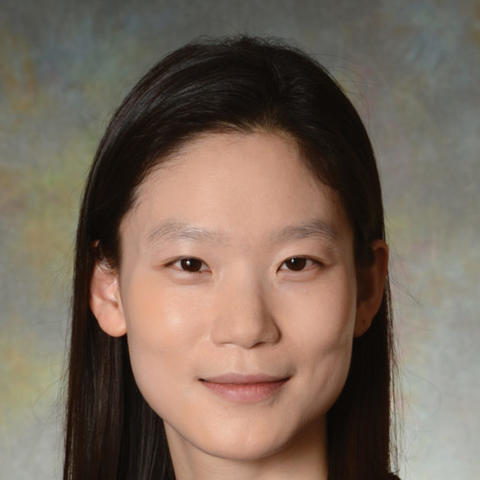
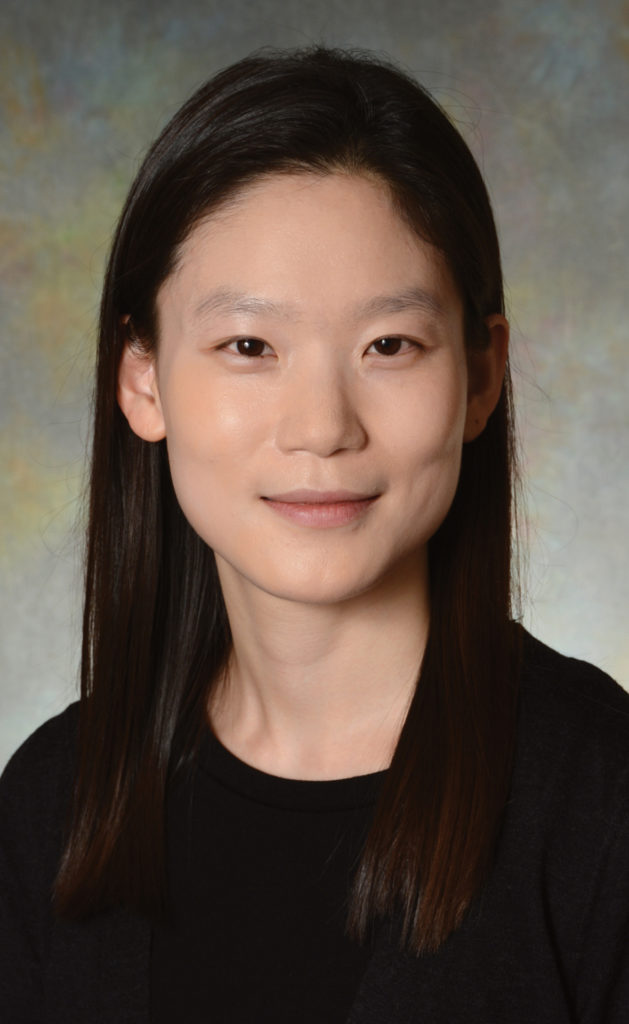
Bio
Dr. Park specializes in the rehabilitation of patients with mild to severe traumatic brain injury.

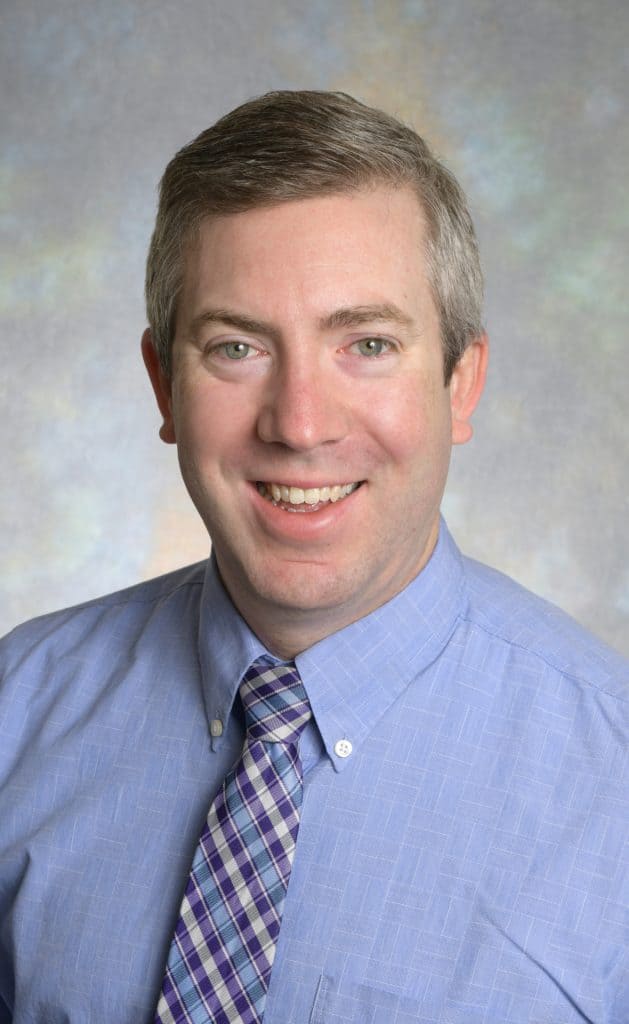
Bio
Dr. Grover-Manthey cares for patients with a wide variety of rehabilitation problems. His concentrations are in the management of rehabilitation after traumatic brain injury, stroke, and other brain injuries. He is currently the Medical Director of Hennepin Healthcare’s Knapp Rehabilitation partnership with the Shiley Ryan Ability Lab.

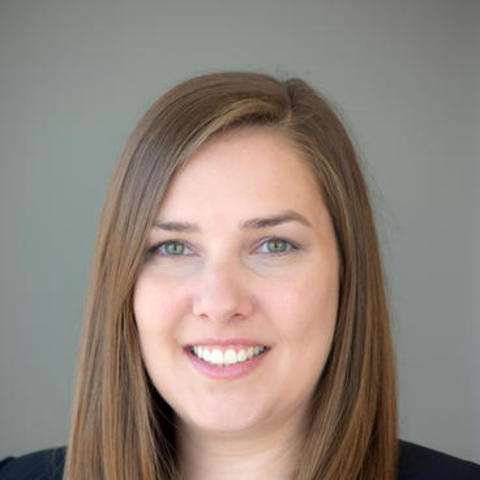
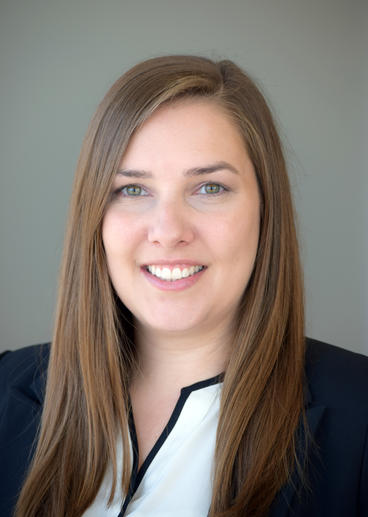
Bio
Dr. Herrmann is a Research Associate in Clinical Neuroscience Research at HealthPartners Neuroscience Center (Regions) and an Adjunct Assistant Professor in the Department of Rehabilitation Medicine at UMN. She has a background in neurorehabilitation research and is PI on two Minnesota state-funded clinical trials, one of which is to assess the effectiveness of an exercise intervention to reduce inflammation among individuals with chronic SCI.
Bio
Professional Associations
- Work sample reviewer, American Board of Professional Psychology/American Board of Clinical Neuropsychology.
- University of Minnesota - Psychology Standards Committee
Research Summary
Deep brain stimulation, Minimal hepatic encephalopathy, Sjögren's syndrome
Teaching Summary
Academic Interests and Focus
Dr. Holker supervises clinical psychology practicum students, and provides lectures for medical students, residents, physicians, and allied health professionals.
Clinical Summary
Dr. Holker's clinical interests include neuropsychological evaluation of adults and adolescents with neurocognitive disorders, with a special emphasis on dementia and movement disorders. She also evaluates patients with traumatic brain injuries, cerebrovascular disorders, neoplastic disorders, infectious diseases, systemic illnesses, cardiovascular disease, seizure disorders, psychiatric conditions, learning disabilities, and degenerative brain diseases.
Specialties
- Neuropsychological evaluation of adults and adolescents with neurocognitive disorders with a special emphasis on dementia and movement disorders. And evaluation of patients with traumatic brain injuries, cerebrovascular disorders, neoplastic disorders, infectious diseases, systemic illnesses, cardiovascular disease, seizure disorders, psychiatric conditions, learning disabilities, and degenerative brain diseases.
Board Certifications
- American Board of Professional Psychology, Clinical Neuropsychology
Contact
Address
500 Boynton Health Service Bridge420 Delaware Street SE
MMC 297
Minneapolis, MN 55455
Administrative Contact
Dan Kelly
dpkelly@umn.edu


Bio
Professional Associations
- American Academy of Physical Medicine & Rehabilitation (AAPMR)
- SIG AAPMR - Stroke Medical Rehabilitation Council
- Association of Academic Physiatrists (AAP)
- Task force AAP-Chronic Disease and Disability
- AAPMR – Neuro-rehabilitation Council
- Minnesota Physiatric Society
- Minnesota Medical Association
- West Metro Medical Association
Research Summary
Clinical Outcome Studies:
- Presence of Ventricular Assist Device and its Impact on Inpatient Acute Rehabilitation Progress
- Effect of Walkaid versus Ankle Foot Orthosis in Improving Gait in Stroke Population
- Effect of Hypertension on Functional Recovery in the Subacute Phase of Stroke Patients
- Promoting Self-Management in Stroke Survivors Using Health IT
Publications
- Van de Winckel, A., De Patre, D., Rigoni, M., Fiecas, M., Hendrickson, T.J., Larson, M., Jagadeesan, B.D., Mueller, B.A., Elvendahl, W., Streib, C., Ikramuddin, F., Lim, K.O. Exploratory study of how cognitive multisensory rehabilitation restores parietal operculum connectivity and improves upper limb movements in chronic stroke. 10 September 2020, PREPRINT available at Research Square https://doi.org/10.21203/rs.3.rs-75235/v1
- Margolis K, Buchner D, LaMonte M, Zhang Y, Di C, Rillamas-Sun E, Hunt J, Ikramuddin F, Li W, Marshall S, Rosenberg D, Stefanick M, Wallace R, LaCroix A. Hypertension Treatment and Control and Risk of Falls in Older Women. The American Geriatrics Society. 2018;00,1-9.
- Lakshminarayan K, Westberg S, Northuis C, Fuller C, Ikramuddin F, Ezzeddine M, Scherber J, Speedie S. "A mHealth-based care model for improving hypertension control in stroke survivors: Pilot RCT". Contemporary Clinical Trials. 2018. (in press)
Teaching Summary
Academic Interests and Focus
As an Assistant Professor at the University of Minnesota, Dr. Ikramuddin is active in training medical students and resident physicians as well as students enrolled in allied health programs. She is an active member on the Medical School Admission Committee, and serves as one of the Site Director in the PM&R Program and PM&R Clinic Lead.
Clinical Summary
Stroke Rehabilitation; Neuro-Rehabilitation; Spasticity Management; Cancer Rehabilitation; Botulinum Injections for Migraines
Specialties
- Stroke rehabilitation
- Neuro rehabilitation
- Spasticity management
Board Certifications
- Physical Medicine & Rehabilitation (ABPMR)
Clinical Interests
- Stroke Rehabilitation
- Neuro-Rehabilitation
- Spasticity Management
- Cancer Rehabilitation
- Botulinum Injections for Migraines
Contact
Address
Department of Rehabilitation Medicine420 Delaware Street SE MMC 297
Minneapolis, MN 55455

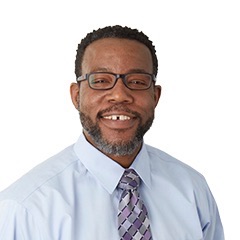


Bio
Awards & Recognition
- Nominee, Resilience Award, Women in Medicine Summit, October 2020
- Resiliency Award, University of Minnesota Division of PM&R Residency Awards, 2018
- Public Health Administration and Policy Quality Improvement Award, University of Minnesota School of Public Health First Group Master’s Project, 2013
Professional Associations
- American Academy of Physical Medicine and Rehabilitation
- American Public Health Association
- American Society of Tropical Medicine and Hygiene
- Association of Academic Physiatrists
- Global Health Work Group, School of Public Health, University of Minnesota
- Program in Health Disparities Research, University of Minnesota
Research Summary
Research Summary/Interests
Co-Investigator in Pilot Clinical Research Trial
- Timp, M, John F, Frost K, Carey J. “Repetitive Transcranial Magnetic Stimulation (rTMS) Treatment of Post-Stroke Spasticity. University of Minnesota Department of Rehabilitation Medicine, 2015.
Publications
Peer-Reviewed Articles
- Gupta S, Larsen E, Garg A, John F et al. “Functional Effectiveness of Inpatient Rehabilitation after Heart Transplantation”. PM&R. 2016 Sep; 8 (9): 855-859. PMID 26875846
- Ojo-Fati O, John F, Thomas J et al. “Integrating smoking cessation and alcohol use treatment in homeless populations”. Trials. 2015 Aug; 16 (385): 1-12. PMID 26320081.
Oral Presentations at International Meetings
- John F, Sembrano R, Roy S et al. “Pre-Operative Predictors for Admission to a Rehabilitation Facility after LVAD Implantation and Its Impact on Long Term Survival”. International Society for Heart and Lung Transplantation, April 2016.
Poster Presentations at National Meetings
- John F. and Seidel E. “A Rare Case of a Post-traumatic Median Nerve Neuroma”. Association of Academic Physiatrists. March 2020.
- John F., Salehi P., Crowe S. “Focal Distal Upper Extremity Weakness: A Rare Case of Hirayama Disease”. Association of Academic Physiatrists. February 2019.
- John, F. and Salehi P.“Lance-Adams Syndrome, A Rare Sequela of Hypoxic Encephalopathy”. American Academy of Physical Medicine & Rehabilitation. October 2018.
- John, F. and Sembrano, R. “Gustatory Rhinorrhea: An Under Recognized Late Effect of Stroke”. Association of Academic Physiatrists. March 2015.
Department of Rehabilitation Medicine Presentations
- A Rare Etiology of Distal Upper Extremity Weakness: Hirayama Disease, University of Minnesota, Metro Rehab, 6/4/2019
- Health Disparities in Rehabilitation Medicine, University of Minnesota PM&R Resident and Faculty Seminars, 5/20/2019
- A Rare Etiology of Pediatric Spinal Cord Injury: Morquio A Syndrome, University of Minnesota Metro Rehab, 6/5/2018
- Pediatric Epileptic Encephalopathies, University of Minnesota PM&R Resident and Faculty Seminars, 3/28/2018
- Toxic Leukoencephalopathy: Rehabilitation Considerations, PM&R Resident Didactics, Regions Hospital, 2/11/2018
- Lance Adams Syndrome (Chronic Post-Hypoxic Myoclonus), PM&R Resident Didactics, University of Minnesota Medical Center, 11/19/2017
- Greater Trochanteric Pain Syndrome, PM&R Resident Didactics, Minneapolis VA Medical Center, 8/11/2017
- Leukocytoclastic Vasculitis in a Transtibial Amputee, PM&R Resident Didactics, Minneapolis VA Medical Center, 7/21/2017
- Current Global Infectious Disease Threats, University of Minnesota PM&R Resident and Faculty Seminars, 6/14/2017
- Repetitive Transcranial Magnetic Stimulation (rTMS) Treatment of Post-Stroke Spasticity, University of Minnesota Metro Rehab, 11/19/2015
Master of Public Health Thesis Defense
- “Reproductive Health in the Somali Community: A Community-Driven Collaboration”. Division of Health Policy and Management, School of Public Health, University of Minnesota. May 2013.
Teaching Summary
Teaching Areas
LEADERSHIP/PROFESSIONAL DEVELOPMENT
University of Minnesota, Director, Rehabilitation Medicine Cancer Program
- October 2020- Present.
University of Minnesota Resident Leadership Academy
- PM&R Residency Program Representative- Nominated by the Department of Rehabilitation Medicine/Participated in the 5th Cohort of the University of Minnesota Resident Leadership Academy, Multidisciplinary course involving year-long longitudinal curriculum with training in leadership and methods to lead organizational change, September 2018- July 2019.
Physical Medicine & Rehabilitation Chief Resident
- Chief Resident for University of Minnesota PM&R residency program, tenure from July 2019- June 2020.
QUALITY IMPROVEMENT
University of Minnesota PM&R Residency Program
- In role as Chief Resident, involved in spearheading initiatives to improve resident mentorship and incorporate resident team building, July 2019 - June 2020.
TEACHING AND CURRICULUM DEVELOPMENT
University of Minnesota PM&R Residency Program
- In role as Chief Resident, responsible for leading board review teaching sessions during PM&R resident didactics on board relevant topics throughout the year.
Service Summary
MENTORSHIP
University of Minnesota School of Public Health Alumni Mentor
- Serving as a School of Public Health Mentor for the 2020-2021 academic year, providing support for career and professional development to a current Master of Public Health student
TEACHING
University of Minnesota Division of Physical Medicine & Rehabilitation
- Dr. John is actively involved in teaching residents and medical students.
Clinical Summary
Specialties
- Cancer
- Physical Medicine and Rehabilitation
Clinics
Fairview Southdale Hospital;Masonic Cancer Center;Physical Medicine & Rehabilitation Clinic
Board Certifications
Physical Medicine & Rehabilitation (ABPMR)


Bio
Dr. Mihir Joshi practices within the Department of Rehabilitation Medicine, Division of PM&R and is part of Medical Spine team providing services in spine health and interventional pain management at M Health Fairview Spine and Neurosurgery in Maplewood. He will also be performing advanced interventional procedures at the M Health Fairview Clinics and Surgery Center (CSC)
Dr. Joshi completed his undergraduate and medical education at Rutgers University and completed his PM&R Residency at the prestigious Baylor College of Medicine in Houston. In his final year of training, he was elected academic chief resident. Dr. Joshi completed his ACGME Pain Medicine Fellowship at UT Health San Antonio and spent two years working in private practice before returning to academia.
Research Summary
Dr. Joshi's Research Interests include interventional pain management, neuromodulation, and outcomes research.
Publications:
1. Schneider B*, Joshi M*, et al. Patient-Perceived Duration of Effect of Lidocaine and Bupivacaine Following Diagnostic Medial Branch Blocks; A Multicenter Study. Interventional Pain Medicine. 2022;1(2):100083
2. Karri J, Joshi M, Polson G, Tang T, Lee M, Orhurhu V, Deer T, Abd-Elsayed A. Spinal Cord Stimulation for Chronic Pain Syndromes: A Review of Considerations in Practice Management. Pain Physician. 2020 Nov;23(6):599-616.
3. Eckmann M, Joshi M, Bickelhaupt B. How I do it: shoulder articular nerve blockade and radiofrequency ablation. ASRA News 2020;45.
4. Karri J, Singh M, Orhurhu V, Joshi M, Abd-Elsayed AA. Pain Syndromes Secondary to Cluneal Nerve Entrapment. Curr Pain Headache Rep, 2020; 24:10):61.
5. Joshi M, Bruel B. Neurodestructive Techniques for Cancer Pain. Practical Pain Management, 2020; 20(1):58-61.
6. Parmar AS, Joshi M, Nosker PL, Hasan NF, Nanda V. Control of Collagen Stability and Heterotrimer Specificity through Repulsive Electrostatic Interactions. Biomolecules. 2013;3(4):986-96.
7. Xu F, Silva T, Joshi M, Zahid S, Nanda V. Circular permutation directs orthogonal assembly in complex collagen peptide mixtures. J Biol Chem. 2013;288(44):31616-23.
Clinical Summary
Dr. Joshi’s clinical interests include interventional spine care, neuromodulation, and emerging minimally invasive procedures to alleviate pain.
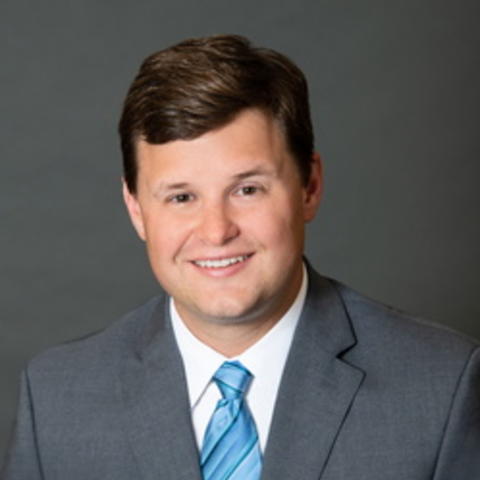
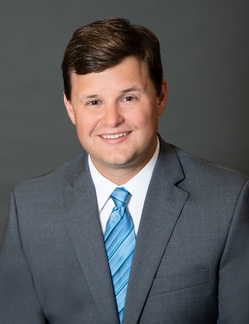
Research Summary
Publications
2011
- Rosner K, Kasprzak MF, Horenstein ACJ, Thurston HL, Abrams J, Kerwin LY, Mehregan DA, Mehregan DR. Engineering a Waste Management Enzyme to Overcome Cancer Resistance to Apoptosis: Adding DNase1 to the Anti-Cancer Toolbox. Cancer Gene Therapy. 2011, Epub ahead of print, PMID: 21233855.
2010
- Rosner K, Kasprzak MF, Horenstein ACJ, Thurston HL, Abrams J, Kerwin LY, Mehregan DA, Mehregan DR. Engineering a waste-management nuclease to overcome melanoma resistance to apoptosis. Pan American Society for Pigment Cell Research 2010 Annual Conference. Vancouver, BC, Canada.
- Rosner K, Kasprzak MF, Horenstein ACJ, Thurston HL, Abrams J, Kerwin LY, Mehregan DA, Mehregan DR. Engineering a waste-management nuclease to overcome melanoma resistance to apoptosis. Pigment Cell Melanoma Res. 2010, 23:709.
Clinical Summary
Board Certifications
- Physical Medicine & Rehabilitation (ABPMR)
- Physical Medicine & Rehabilitation (ABPMR) - Brain Injury Medicine

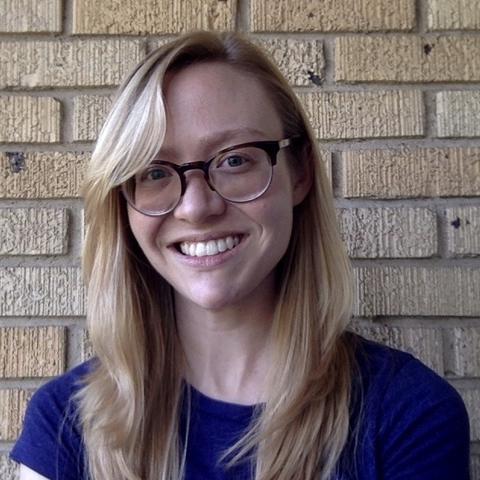
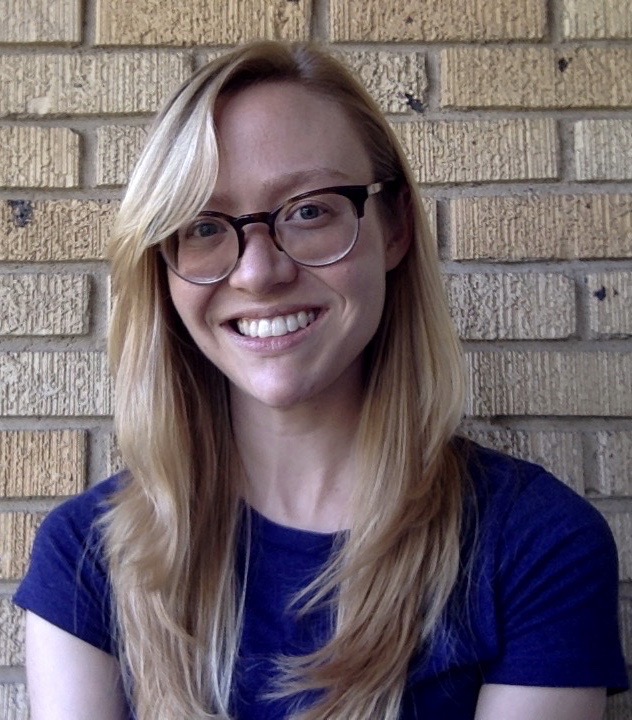
Bio
Dr. Kowalski is an Assistant Professor in the Department of Rehabilitation Medicine. She received her Doctor of Physical Therapy (DPT) degree from the University of North Carolina at Chapel Hill and holds clinical experience in pediatric physical therapy with an emphasis in neurorehabilitation. She completed her PhD in Rehabilitation Science with a Minor in Neuroscience at the University of Minnesota and conducted training in neuroimaging analysis as a Postdoctoral Research Fellow at Harvard University.
Research Summary
Dr. Kowalski’s research centers on maladaptive neuroplastic mechanisms within the sensorimotor system after neurological injury. Her lab focuses on identification of biomarkers and the effect of rehabilitation interventions across molecular and systems level neuroscience domains. Areas of particular interest include neurodevelopmental outcomes after perinatal stroke, with emphasis on development of assessments to promote early diagnosis and intervention.
Select Publications
Kowalski JL, Morse LR, Troy K, Nguyen N, Battaglino RA, Falci S, Linnman C. Resting state functional connectivity differentiation of neuropathic and nociceptive pain in individuals with chronic spinal cord injury. NeuroImage Clinical. 2023;38;103414.
Nemanich ST, Lench DH, Sutter EN, Kowalski JL, Francis S, Meekins G, Krach L, Feyma T, Gillick BT. Individualized anodal transcranial direct current stimulation modulates corticospinal excitability in children with hemiparesis due to early stroke. European Journal of Paediatric Neurology. 2023;43;27-35.
Kowalski JL, Nguyen N, Battaglino RA, Falci SP, Charlifue S, Morse LR. MiR-338-5p levels and cigarette smoking are associated with neuropathic pain severity in individuals with spinal cord injury: preliminary findings from a genome-wide microRNA expression profiling screen. Archives of Physical Medicine and Rehabilitation. 2022;103(4);738-746.
Kowalski JL, Hickey M, Rao R, Georgieff MK, Chen M, Gillick BT. Safety of single-pulse TMS in two infants with implanted ductus arteriosus closure devices. Brain Stimulation. 2020;13(3);861-862.
Behan M, Nawshin T, Nemanich S, Kowalski JL, Sutter E, Francis S, Dubinsky J, Fresse R, Rudser K, Gillick BT. A crossed-disciplinary evaluation of parental perceptions surrounding pediatric non-invasive brain stimulation research. International Journal of Pharmaceutical and Healthcare Marketing. 2020; 14(4); 623-640.
Kowalski JL, Nemanich ST, Nawshin T, Chen M, Peyton C, Zorn E, Hickey M, Rao R, Georgieff M, Gillick BT. Motor evoked potentials as potential biomarkers of early atypical corticospinal tract development in infants with stroke. Journal of Clinical Medicine. 2019;8(8);1208-1221.

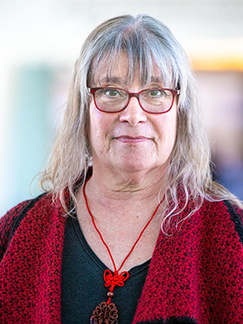


Bio
Dr. Murali Krishnamurthy is an Associate Professor in the Department of Rehabilitation Medicine. He is a physiatrist and a pain specialist with more than 25 years of experience. He treats patients with chronic pain and impaired functioning from various causes at the M Health Fairview Acute Rehabilitation Center in the 2512 building and at the M Health Clinics and Surgery Center in Minneapolis. Dr. Krishnamurthy's clinical interests include headaches, neck and low back pain, SI pain, myalgia, neuralgia, work injuries, treatment of migraines, spasticity, and dystonia with Botox, and neurorehabilitation.
Awards & Recognition
- Distinguished Visitor, Medtronic, 2014
- Honor Committee, Fuqua School of Business, Duke University, 2009
- Allergan Institute of Distinction, 1st Cohort, 2005
- William Peterson’s Award, University of St. Thomas, 2002
- Certificate of Excellence for Medical Student Teaching, Dept. of Pediatrics, Stony Brook, New York, 1989- 1990
- Research Fellowship, Department of Surgery, University of Alabama, 1986- 1988
- National Merit Scholar, 1976- 1983
Professional Associations
- American Academy of Physical Medicine and Rehabilitation
- American Academy of Pediatrics
- American Association of Neuromuscular and Electrodiagnostic Medicine
- American College of Health Executives
- Biomedical Engineering Society
- Ethics Committee, North Memorial Medical Center
- GLG Healthcare Council Member and GLG Advisory Board Panel
- Global Health Council
Research Summary
Publications
- Strain Gauge Evaluation of Lunate Unloading Procedures, Journal of Hand Surgery, May 1992, 17(3): 437-43.
- Panel Member, MN-ACHE FACHE Panel Discussion, 2018, 5th Annual Fall Conference, Crowne Plaza, Plymouth MN
- ABPM&R Examiner, 2019 Part II Examiner American Board of Physical Medicine and Rehabilitation
- Abstracts: Pediatric Rehabilitation of Hypothermia and Cold Injury: A case report.
Clinical Summary
Clinics
Clinics and Surgery Center
Board Certifications
- Pediatrics (ABP)
- Physical Medicine & Rehabilitation (ABPMR)
- American Board of Electrodiagnostic Medicine Certified
- American College of Healthcare Executives Certified
Contact
Address
Acute Rehabilitation CenterR451
Minneapolis, MN 55454-1404
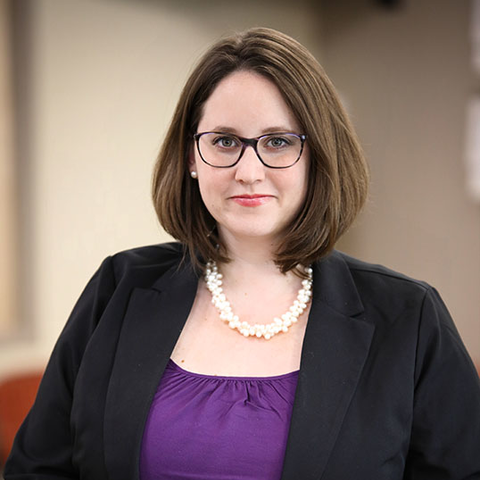
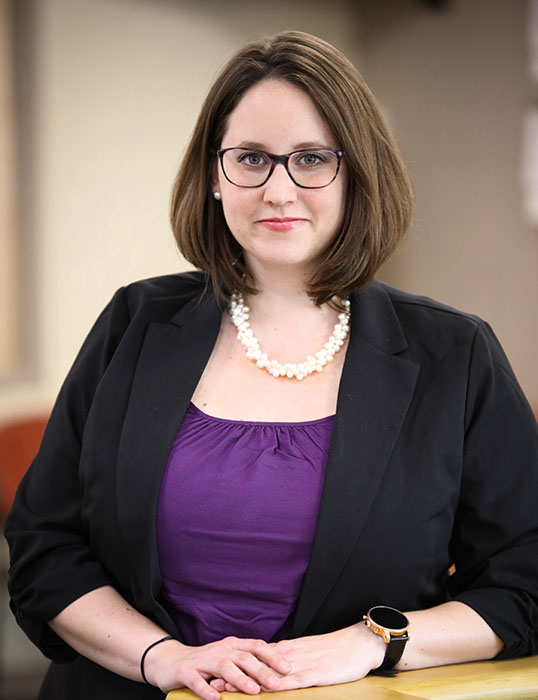
Bio
Academic Interests
Executive functioning, cerebellum, functional neurological disorder, rehabilitation, delayed recovery concussion, ADHD, TBI, stroke, pre-surgical evaluations, psychotherapy
Research Summary
Select Publications
Coutellier, L., Logemann, A., & Usdin, T. (2011). Maternal absence of the parathyroid hormone 2 receptor affects postnatal pup development. Journal of Neuroendocrinology, 23, 612-619.
Coutellier, L., Logemann, A., Kuo, J., Rusnak, M., & Usdin, T. (2011). TIP39 modulates effects of novelty-induced arousal on memory. Genes, Brain, and Behavior, 10, 90-99.
Presentations
Logemann, A., &. (2022, April). Family, Friends, and Foes: Navigating Complex Relationships Following ABI Through Case Examples [Webinar]. Brain Injury Association of Iowa.
Logemann, A., Barnett, R., & Barnett, G. (2022, April). Clinical Assessment and Considerations in Substitute Decision-Making. Presentation at On With Life Annual Conference. Des Moines, IA.
Logemann, A., & Judd, J. (2022, March). Functional Neurological Approach To Cognitive Challenges In Delayed Recovery Concussion and Long COVID. Presentation at Brain Injury Alliance of Iowa 30th Annual Conference. Des Moines, IA, Online platform.
Logemann, A., & Demarest, D. (2021, September). Neuropsychology 101: All the Questions You Were Afraid To Ask. On With Life Fall Conference 2021. Ankeny, IA.
Logemann, A., & Van Quatham, C. (2021, August-September). From Playground to Retirement: Best Practices in Concussion Management. Brain Injury Association of Iowa 2021Concussion Consortium, Online platform.
Logemann, A., & Reed, K. (2021, June). Establishing Allyship: What you need to know when working with individuals who identify as LGBTQ+ [Webinar]. On With Life.
Anders, D., & Logemann, A. (2021, May). Neurobehavioral Programming in Brain Injury: Embracing the Challenge with Dignity. Presentation at Western Michigan Brain Injury Conference. Grand Rapid, MI (and online).
Anders, D., & Logemann, A. (2019, September). Neurobehavioral Programming: Embracing the Challenge with Dignity. Presentation at On With Life’s Neurorehabilitation Fall Conference. Des Moines, IA.
Logemann, A. (2019, September). Psychosocial challenges following concussion. Presentation at On With Life’s Neurorehabilitation Fall Conference Concussion Symposium. Des Moines, IA.
Logemann, A., & Anders, D. (2019, April). Understanding Mild, Moderate, and Severe Brain Injury and its impact on the injured worker. Speakers for On With Life’s Worker’s Compensation Symposium. Ankeny, IA.
Logemann, A. (June 2019). Dementia 101: Overview of Neurodegenerative Processes. Invited Speaker for didactic series at Columbia University, New York, NY.
Logemann, A. (2019, February). Sex and sexuality after brain injury. Presentation at Brain Injury Alliance of Iowa 27th Annual Conference. Des Moines, IA.
Logemann, A., & Garlinghouse, M. (2018, June). The cerebellum: Not just the little brain. Grand Rounds presented at University of Nebraska Medical Center. Omaha, NE.
Logemann, A., & Garlinghouse, M. (2017, November/December). Cognitive Changes in Patients and Colleagues: Definitions and Strategies to Cope and Care. Nebraskan Lawyer, pg. 15-21.
Garlinghouse, M., & Logemann, A. (2017, April). Cognitive Change: To Lumosity or not to Lumosity? Guest speakers for Grey Matters: Together with Courage, an Event for Brain Cancer Patients and Their Caregivers. Omaha, NE.
Nelson-Sheese, A., May, P.E., & Logemann, A. (2016, October). Neuropsychological Evaluation. Guest speakers for Joe Niekro Foundation Brain Aneurysm, AVM, and Stroke Support Group. Omaha, NE
Fedio, A. A., Sexton, J. Lasko, L., Efanov, S., Golden, S., Logemann, A., Cummings, S., Fedio, P. (2014, August). Sense of self following traumatic brain injury: Effect of being informed about residual disabilities. Poster presented at American Psychological Association, Washington, DC.
Logemann, A. (2013, April). Contribution of pediatric cerebellar tumor resection to interpersonal communication. Poster presented at the 13th Annual Cognition and Affect Campus Poster Session (A. Fedio), American School of Professional Psychology, at Argosy University, Washington, DC.
Fedio, A., Sexton, J., Cummings, S., Logemann, A., Lassiter, NK., Fedio, P. (2012, November). Recovery from traumatic brain injury: The effect of being informed about risk for disability. Poster presented at National Academy of Neuropsychology Conference. Nashville, TN.
Fedio, A., Sexton, J., Thomas, T., Burgess, R., Logemann, A., Fedio, P. (2012, July). Self-concept as a motivator for seeking treatment following traumatic brain injury: Patient and family contributions. Poster presented at the Mid-Year Conference of the International Neuropsychology Society. Oslo, Norway.
Logemann, A. (2011, November). Love, sex, and neuroscience. Oral presentation at Neuropsychology Interest Group. American School of Professional Psychology at Argosy University, Washington, DC.
Coutellier, L., Logemann, A., & Usdin, T. (2009, September). Memory impairment under conditions of emotional arousal in mice lacking TIP39. Oral presentation at National Institute of Mental Health DIRP Scientific Retreat, Gettysburg, PA.
Logemann, A., Coutellier, L., & Usdin, T. (2009, May). Social and object recognition in TIP39 knockout mice. Poster presented at National Institute of Health Spring Research Festival, Bethesda, MD
Clinical Summary
Clinical Interests
Executive functioning, cerebellum, functional neurological disorder, rehabiliation, delayed recovery concussion, ADHD, TBI, stroke, pre-surgical evaluations, psychotherapy






Bio
Kimberley Monden, PhD, is an Associate Professor in the Department of Rehabilitation Medicine at the University of Minnesota. Dr. Monden is a Licensed Psychologist with clinical experience in health and rehabilitation psychology. Her research focuses on psychosocial adaptation to injury. Dr. Monden studies resilience and appraisals of injustice, with a specific interest in improving quality of life and long- term psychosocial outcomes after spinal cord injury. Dr. Monden has research funding from the National Institute on Disability, Independent Living and Rehabilitation Research, the Department of Defense, and the Craig H. Neilsen Foundation. Dr. Monden earned her Doctoral degree in Counseling Psychology at the University of Kansas in 2009. She completed her pre-doctoral internship in Clinical Psychology at the University of Kansas Medical Center in Kansas City, KS, and Post-Doctoral Fellowship in Health Psychology and Integrated Primary Care at the University of Wisconsin Hospital and Clinics and Access Community Health Centers in Madison, Wisconsin.
Awards & Recognition
- Rosenthal Early Career Research Award, APA Division 22 (Rehabilitation Psychology), 2019
- Harold Yuker Award for Research Excellence, APA Division 22 (Rehabilitation Psychology), 2018
- American Psychological Association, Psi Chi National Convention Research Award, 2003
Professional Associations
- Academy of Spinal Cord Injury Professionals (ASCIP)
- American Congress of Rehabilitation Medicine (ACRM)
- American Psychological Association (APA)
- American Spinal Injury Association (ASIA)
- APA, Division 22 (Rehabilitation Psychology)
- APA, Division 38 (Health Psychology)
- International Spinal Cord Society (ISCoS)
- National Register of Health Service Providers
Research Summary
Dr. Monden's research focuses on psychosocial adaptation to injury. She studies resilience and appraisals of injustice, with a specific interest in improving quality of life and long-term psychosocial outcomes after spinal cord injury.
Research Funding Grants
- Minnesota Regional Spinal Cord Injury Model System, Principal Investigator: Leslie Morse. Kimberley Monden and Ann Van de Winckel, co-investigators. Sponsor: U.S. Department of Health & Human Services ACL. Timing: September 1, 2021 - August 31, 2026
- The Impact of Injustice Appraisals on Pyschosocial Outcomes Following Spinal Cord Injury: A Longitudinal Study. Role: PI. Sponsor: U.S. Department of Defense. Timing: July 1, 2021 - June 30, 2024
- Assistive Technology & Functional Outcomes Following Spinal Cord Injury. Role: PI. Sponsor: U.S. Department of Defense. Timing: June 10, 2021 - September 29, 2022
- Reinventing Yourself after SCI: A Multi-site Randomized Controlled Trial of an Intervention to Improve Outcomes After Spinal Cord Injury. Role: PI.
Sponsor: Craig Hospital, Englewood, CO. Timing: March 1, 2020 - September 20, 2022 - Adaptation and Dissemination of the Spinal Cord Injury Physical Activity Guidelines. Role: PI. Sponsor: Paralyzed Veterans of America. Timing: June 1, 2021 - May 31, 2022
- RACR: Promoting Resilience, Adjustment, and Community Reintegration After SCI. Role: PI. Sponsor: Craig Hospital, Englewood, CO. Timing: May 31, 2020 - May 30, 2022
- Validation of the Use of the Injustice Experience Questionnaire in the Spinal Cord Injury Population. Role: PI. Sponsor: Craig Hospital, Englewood, CO. Timing: March 1, 2020 - December 31, 2021
Publications
I. Peer-Reviewed Publications (* indicates student author)
- Starosta, A., Sayko Adams, R., Marwitz, J., Monden, K. R., Dams-O'Connor, K., & Hoffman, J. (2021). Scoping review of opioid use after traumatic brain injury. Journal of Head Trauma Rehabilitation, 36(5), 310-327. PMID: 34489382 PMCID: PMC8428300 doi: 10.1097/HTR.0000000000000721
- Novack, T., Zhang, Y., Kennedy, R., Watanabe, T. K., Monden, K. R., Dreer, L. E., Bombardier, C., Brunner, R., Goldin, Y., Marwitz, J., & Niemeier, J. (2021). Return to driving following moderate-to-severe traumatic brain injury: A Traumatic Brain Injury Model System study. Archives of Physical Medicine and Rehabilitation, 102(8), 1568-1575. PMID: 33705772 doi: 10.1016/j.apmr.2021.02.006
- Mahoney, E. J., Silva, M. A., Reljic, T., Dams-O'Connor, K., Hammond, F. M., Monden, K. R., Chung, J. S., Dillahunt-Aspillaga, C., & Nakase-Richardson, R. (2021). Rehabilitation needs at five-years post-TBI: a VA TBI Model Systems study. Journal of Head Trauma Rehabilitation, 36(3), 175-185. PMID: 33201036 doi: 10.1097/HTR.0000000000000629
- Monden, K. R., Philippus, A., MacIntyre, B., Welch, A., Sevigny, M., Draganich, C., Agtarap, S., & Morse, L. R. (2021). The impact of stigma on psychosocial outcomes following spinal cord injury: a cross-sectional analysis for stigma-mediated relationships. Rehabilitation Psychology, 66(2), 202-212. PMID: 33382334 doi: DOI: 10.1037/rep0000371
- Silva, M. A., VandenBussche Jantz, A. B., Klocksieben, F., Monden, K. R., Rabinowitz, A. R., Cotner, B. A., Dillahunt-Aspillaga, C., & Nakase-Richardson, R. (2021). Unmet rehabilitation needs indirectly influence life satisfaction 5 years after traumatic brain injury: A Veterans Affairs TBI Model Systems study. Archives of Physical Medicine & Rehabilitation, 102(1), 58-67. PMID: 32949552 doi: 10.1016/j.apmr.2020.08.012
- Draganich, C., Berliner, J., Sevigny, M., W, N., Philippus, A., Payne, L., Gerber, D., & Monden, K. R. (in press, accepted August 2021). The impact of a structured rehabilitation program for uninsured individuals. Rehabilitation Psychology.
- Monden, K. R., Andrews, E., Pilarski, C., Hearn, J., & Morse, L. R. (in press, accepted June 2021). COVID-19 and the spinal cord injury community: concerns about medication rationing and social isolation. Rehabilitation Psychology.
- Nakase-Richardson, R., Schwartz, D., Ketchum, J., Drasher-Phillips, L., Dahdah, M., Monden, K.R., Bell, K., Hoffman, J., Whyte, J., Bogner, J., Calero, K., Magalang, U. Comparison of diagnostic sleep studies in hospitalized neurorehabilitation patients with moderate to severe traumatic brain injury. doi:10.1016/j.chest.2020.03.083. Chest. Epub 2020 May 6. PMID: 32387522
- Zeitzer, J.M., Hon, F., Whyte, J., Monden, K.R., Bogner, J., Dahdah, M., Wittine, L., Bell, K.R., Nakase-Richardson, R. Coherence between sleep detection by actigraphy and polysomnography in a multi-center, in-patient cohort of individuals with traumatic brain injury. Arch Phys Med Rehabil. doi:10.1002/pmrj.12353. Epub 2020 Mar 3. PMID: 32125095
- Makley, M., Gerber, D., Newman, J., *Philippus, A., Monden, K.R., Biggs, J., Spier, E., Tarwater, P., Weintraub, A. Optimized Sleep after Brain Injury (OSABI): a pilot study of a sleep hygiene intervention for individuals with moderate to severe brain injury. Neurorehabilitation and Neural Repair. Neurorehabil Neural Repair. 2020 Feb;34(2):111-121. doi: 10.1177/1545968319895478. Epub 2019 Dec 30. PMID: 31884895
- Monden, K.R., *Philippus, A., Draganich, C., MacIntyre, B., Charlifue, S. A qualitative exploration of perceived injustice among individuals living with spinal cord injury. Rehabil Psychol. 2020 Feb;65(1):54-62. doi:10.1037/rep0000301. Epub 2019 Dec 12. PMID: 31829642
- Nakase-Richardson, R., Schwartz, D.J., Drasher-Phillips, L., Ketchum, J.M., Calero, K., Dahdah, M.N., Monden, K.R., Bell, K., Magalang, U., Hoffman, J., Whyte, J., Bogner, J., Zeitzer, J. Comparative effectiveness of sleep apnea screening instruments during inpatient rehabilitation following moderate to severe TBI. Arch Phys Med Rehabil. 2020 Feb;101(2):283-296. doi:10.1016/j.apmr.2019.09.019. Epub 2019 Nov 6. PMID: 31705855
- Monden, K.R., Sevigny, M., Ketchum, J.K., Charlifue, S., Severe, E., Tefertiller, C., Berliner, J., Coker, J., Taylor, H.B., Kolakowsky-Hayner, S.A., Morse, L.R. Associations between insurance provider and assistive technology use for computer and electronic devices one year after tetraplegia: findings from the Spinal Cord Injury Model Systems National Database. Arch Phys Med Rehabil. 2019 Dec;100(12):2260-2266. doi:10.1016/j.apmr.2019.06.013. Epub 2019 Jul 24. PMID: 31351077
- Monden, K.R., *Philippus, A., Boals, A., *Draganich, C., Morse, L.R., Ketchum, J.M., Trost, Z. Unique predictors of perceived injustice and depression after spinal cord injury: evidence for distinct psychological constructs. Spinal Cord. 2019 Dec;57(12):1031-1039. doi: 10.1038/s41393-019-0318-9. Epub 2019 Jun 24. PMID: 31235873
- *Draganich, C., Gerber, D., Monden, K.R., Newman, J., Weintraub, A., Biggs Arnold, J., *Philippus, A., Makley, M. Disrupted sleep and agitation following traumatic brain injury. Brain Inj. 2019 Jun 24. doi: 10.1080/02633052.2019.1631484. [Epub ahead of print]. PMID: 31215813
- Makley, M.J., Monden, K.R., *Philippus, A., Tarwater, P., Newman, J., Biggs, J., Spier, E., Weintraub, A. Objective measures of sleep and wakefulness in patients with moderate to severe brain injury on an inpatient rehabilitation unit. Pearls and pitfalls of actigraph monitoring. Neurorehabilitation. 2018;43(3):277-285. doi:10.3233/NRE-182537. PMID: 30373965
- *Bayer, J., Moulton, C., Monden, K.R., Goldstein, R.M., McKenna, G.J., Testa, G., Ruiz, R.M., Anthony, T.L., Onaca, N., Klintmalm, G.B., Kim, P.T.W. (2018). The role of multiorgan procurement for abdominal transplant in general surgery resident education. Am J Surg. 2018 Aug;216(2):331-336. doi: 10.1016/j.amjsurg.2017.08.015. Epub 2017 Aug 25. PMID: 28859922
- *Linsk, A.M., Monden, K.R., Sankaranarayanan, G., Ahn, W., Jones, D.B., De, S., Schwaitzberg, S.D., Cao, C.G.L. Validation of the VBLaST pattern cutting task: A learning curve study. Surg Endosc. 2018 Apr;32(4):1990-2002. doi: 10.1007/s00464-017-5895-0. Epub 2017 Oct 19. PMID: 29052071; PMCID: PMC5845471
- Boals, A., Trost, Z., Bernsten, D., *Nowlin, L., *Wheelis, T., Monden, K.R. Event centrality as a unique predictor of posttraumatic stress symptoms and perceived disability among individuals following spinal cord injury. Spinal Cord. 2017 Nov;55(11):1023-1027. doi: 10.1038/sc.2017.57. Epub 2017 May 30. PMID: 28555662
- Trost, Z., Scott, W., Buelow, M., *Nowlin, L., Turan, B., Boals, A., Monden, K.R. The association between injustice perception and psychological outcomes in an inpatient spinal cord injury sample: the mediating effects of anger. Spinal Cord. 2017 Oct;55(10):898-905. doi. 10.1038/sc.2017.39. Epub 2017 May 30. PMID: 28555664
- Hamilton, R., Driver, S.J., Noorani, S., Callender, L., Bennet, M., Monden, K.R. Utilization and access to healthcare services among community dwelling people living with spinal cord injury. J Spinal Cord Med. 2017 May;40(3):321-29. doi: 10.1080/10790268.2016.1184828. Epub 2016 May 25. PMID: 27221396; PMCID: PMC5472020
- Salisbury, D.B., Parsons, T.D., Monden, K.R., Trost, Z., Driver, S.J. Brain-computer interface for individuals after spinal cord injury. Rehabil Pscyhol. 2016 Nov;61(4):435-41. doi: 10.1037/reo0000099. Epub 2016 Sep 29. PMID: 27684465
- Driver, S.J., Warren, A.M., *Agtarap, S., *Reynolds, M., Hamilton, R., Trost, Z., Monden, K.R. Identifying predictors of resilience at inpatient and 3-months post spinal cord injury. J Spinal Cord Med. 2016;39(1):77-84. doi:10.1179/2045772314Y.0000000270. Epub 2014 Oct 9. PMID: 25297474; PubMed Central PMCID:PMC4725795
- Trost, Z., Monden, K.R., Buelow, M., Boals, A., Scott, W. Perceived injustice predicts intention to litigate: findings from a spinal cord injury sample. Psychological Injury & Law. 2016 March;9(1):31-40. doi: 10.1007/s12207-015-9245-z
- Monden, K.R., Trost, Z., Scott, W., Bogart, K.R., Driver, S.J. The unfairness of it all: exploring the role of injustice appraisals in rehabilitation outcomes. Rehabil Psychol. 2016 Feb;61(1):44-53. doi: 10.1037/rep0000075. Review. PMID: 26881306
- Monden, K.R., Gentry, L., Cox, T.R. (2016). Delivering bad news to patients. Proc (Bayl Univ Med Cent). 2016 Jan;29(1):101-2. doi: 10.1080/08998280.2016.11929380. PMID: 25297474; PMCID: PMC4677873
- Fromm, N., Salisbury, D.B., Driver, S.J., Dahdah, M., Monden, K.R. Functional recovery from neuroinvasive west nile virus: a tale of two courses. Rehabil Psychol. 2015 Nov;60(4):383-90. doi: 10.1037/rep0000058. Epub 2015 Oct 5. PMID: 26436993
- Monden, K.R., Trost, Z., Catalano, D., *Garner, A., *Symcox, J., Driver, S., Hamilton, R.G., Warren, A.M. Resilience following spinal cord injury: a phenomenological view. Spinal Cord. 2014 Mar;52(3):197-201. doi: 10.1038/sc.2013.159. Epub 2014 Jan 14. PMID: 24418959
- Serrano, N., Molander, R., Monden, K.R., Grosshans, A., Krahn, D. Exemplars in the use of technology for management of depression in primary care. WMJ. 2012 Jun;111(3):112-8. PMID: 22870556
- Serrano, N., Monden, K.R. The effect of behavioral health consultation on the care of depression by primary care clinicians. WMJ. 2011 Jun;110(3):113-8. PMID: 21748995
- Mollenkopf, D., Elliott, M., Monden, K.R. Effects of a professional development model on preschool teachers' literacy practices in Early Reading First classrooms. Journal of Research Methodology. 2008;32:273-294.
II. Non-Peer Reviewed Publications
- Trost, Z., Sturgeon, J.A., Azuero, C., Monden, K.R. Injustice and disability. In D.S. Dunn (Ed.), Disability: Social Psychological Perspectives. 2019. New York, NY: Oxford University Press.
- Monden, K.R., Gerber, D., Newman, J., Philippus, A., Biggs J., Schneider, H., Spier, E., Weintraub, A., Makley, M. Sleep hygiene: A novel, nonpharmacological approach to treating sleep-wake cycle disturbance after Page 10 of 19 moderate to severe brain injury on an inpatient rehabilitation unit. Brain Injury Professional. 2017;14(4):20-21.
- Monden, K.R. How to deliver bad news with empathy [Web log post]. 2016 Mar 28. Available from http://scrubbing.in/how-to-deliver-bad-news-with-e...
- Key-Roberts, M.J., Monden, K.R. Teaching positive psychology from a graduate students’ perspective. 2007 Fall. Naming and Nurturing.
III. Chapters in Books
- Monden, K.R. Saving. In S.J. Lopez (Ed.), Encyclopedia of Positive Psychology, Volume 2. 2009. Malden, MA: Wiley-Blackwell.
Teaching Summary
Courses
Graduate Course: The Human Experience: A Dialogue between Philosophy and Positive Psychology
Undergraduate Course: Introduction to Positive Psychology
Graduate Course: Understanding Research in Education
Graduate Course: Lab: Introduction to Statistical Analysis (SPSS)
Graduate Course: Counseling Skills for Teachers

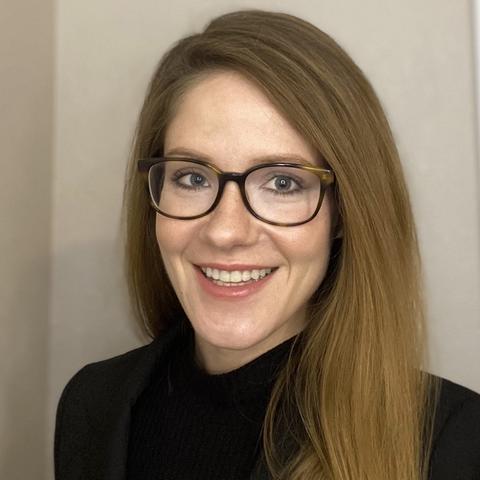
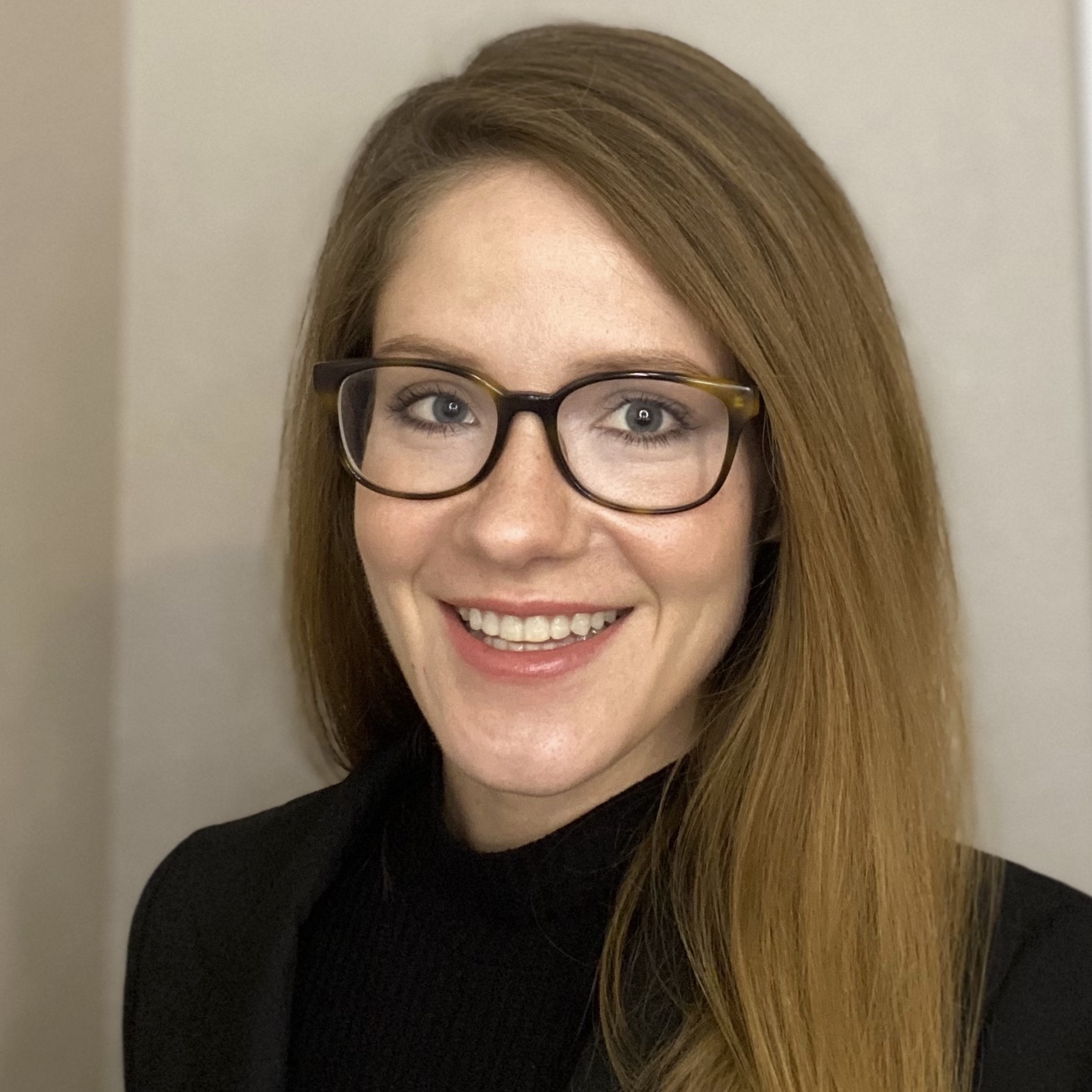
Bio
Dr. Marlena "Rose" Mueller is a board-certified physiatrist who specializes in sports medicine. She is active in resident and fellow education as an Assistant Professor in the department of PM&R at the University of Minnesota. Dr. Mueller completed her PM&R residency at Case Western Reserve University/MetroHealth Medical Center and completed her sports medicine fellowship at the University of Toledo. She currently practices non-operative sports medicine in Woodbury and Burnsville, and assists as a team physician for the University of Minnesota. In her spare time, Dr. Mueller enjoys downhill skiing, reading, traveling, and cycling.
Care Philosophy:
My philosophy for patient care is to provide an evidence-based, comprehensive, and patient-centered treatment plan to optimize recovery. I enjoy working with athletes of all ages, activity levels, and abilities. My goal is to collaborate with my patients to improve their functional status, return to activity, and quality of life.
Honors and Awards:
- Resident Research Award
- Patient Safety Award
- Asikin Mentari MD Resident Scholarship Award
- Shu Q Huang, MD Resident Electrodiagnostic Scholarship Award
Research Summary
Dr. Mueller’s research interests include regenerative medicine, neuromuscular ultrasonography, and blood flow restriction therapy.
Publications
- Mueller M, Olsen A, Wissner R, Hileman C, Cleland T. Septic arthritis after intra-articular corticosteroid injection. In Submission, 2022
- Hillery T, Mueller M, Rainey H. Atraumatic calcific tendinitis of the second digit flexor tendon sheath, a case report. American Journal of Physical Medicine and Rehabilitation, 2021
Book Chapters
- Grabnar M, Mueller M, Kim C. History of Radiofrequency Ablation. Radiofrequency Ablation Techniques. Abd-Elsayed Ed. Elsevier. July 1, 2023
- Mata N, Mueller M, Kim C. Gastric Stimulation. Interventional Pain Management: Peripheral Nerve Stimulation: A comprehensive guide. Trescot A ed. Elsevier. Dec 12, 2022
Clinical Summary
Clinical Interests:
- Pediatric and Adult Sports Medicine
- Performing Arts Medicine
- Sports-related concussion
- Regenerative medicine
- Musculoskeletal Ultrasound
Professional Memberships:
- American Academy of Physical Medicine and Rehabilitation
- American Medical Society of Sports Medicine

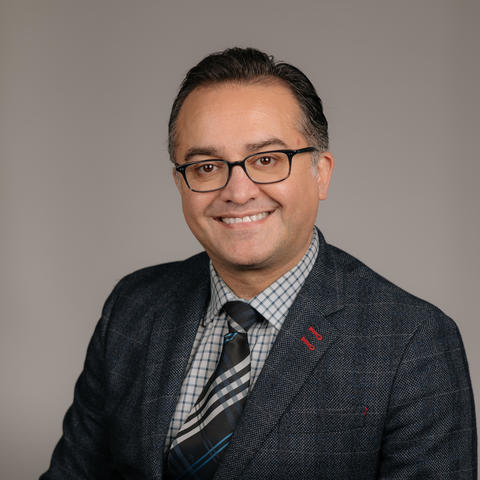
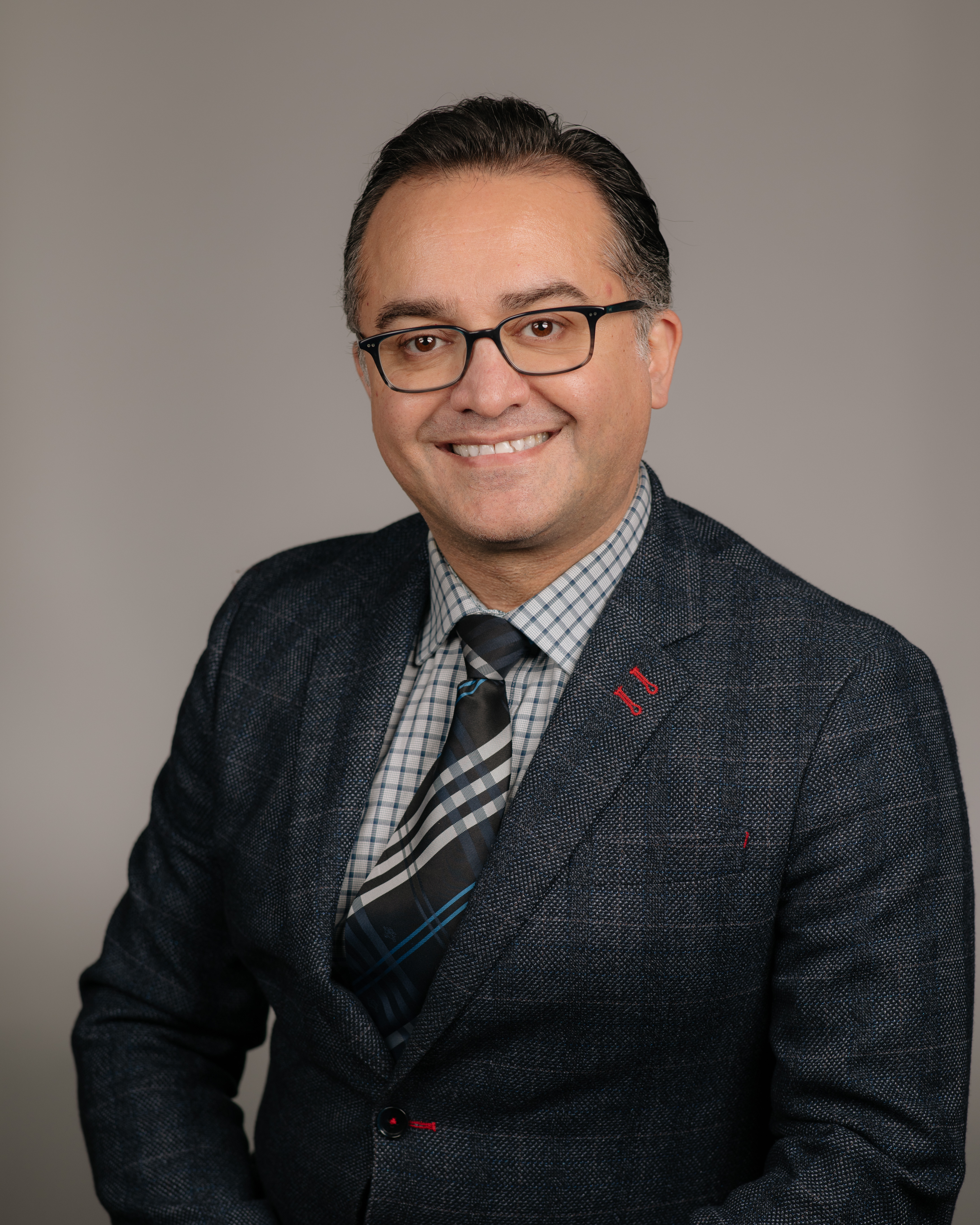
Bio
Dr. Novin practices as a general physiatry providing care at the M Health Fairview Acute Rehabilitation Center and general physiatry clinics.
Dr. Novin completed his undergraduate at Simon Fraser University, Canada, and his Doctor of Medicine at Ross University School of Medicine, West Indies. He completed his PM&R Residency at the University of Toronto, Canada. Dr. Novin also completed his Doctor of Chiropractic at Southern California University of Health Sciences. Most recently Dr. Novin was the Director of the inpatient rehabilitation unit at Trinity Health-MercyOne Siouxland Medical Center, Iowa.
Dr. Novin’s clinical interests include stroke, MSK, SCI and sports medicine.
Professional Memberships
American Academy of Physical Medicine and Rehab
American Medical Society for Sports Medicine
Canadian Association of Physical Medicine and Rehabilitation
Languages



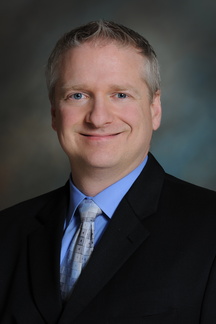
Clinical Summary
Spine Pain; CRPS; Central Sensitization.
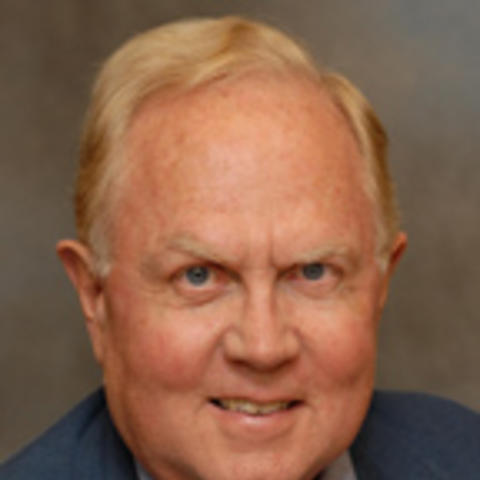
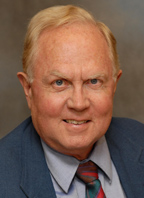
Bio
Professional Associations
- IEEE, Engineering in Medicine and Biology Society and Society for Scientific Exploration
Research Summary
Research Summary/Interests
- Medical Instrumentation and Devices
- Bioelectricity
- Electrical stimulation and Bioelectrical Impedance
Teaching Summary
Courses
BMEn 5-5101 Advanced Bioelectricity and Instrumentation (3 credits) The goals of this course are to develop an understanding of the instrumentation requirements for the measurement of body potentials, to interpret the physiological meaning of the signals, and to understand the uses of the static and dynamic tissue electrical impedance characteristics to obtain physiological measurements. The focus will be on the measurements that are used in or have potential to be used in clinical medicine (1989-2007).
Contact
Address
R593 ChRC426 Church St SE
Minneapolis, MN 55455
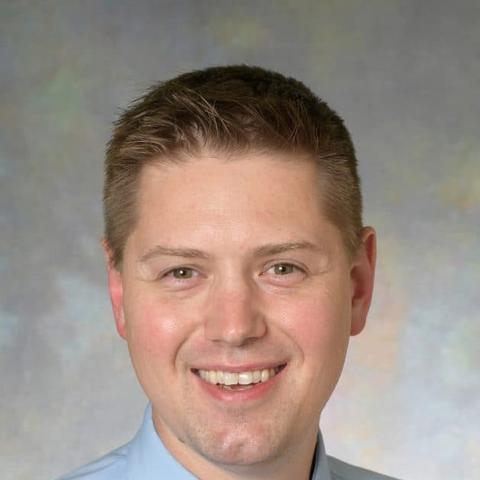
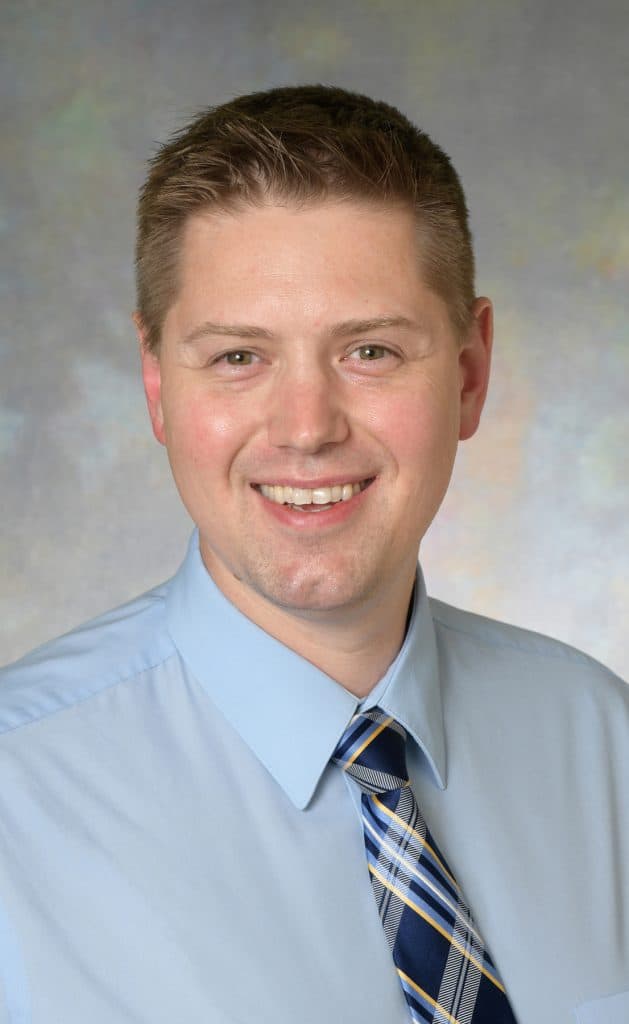
Bio
Dr. Puderbaugh is board certified in Physical Medicine and Rehabilitation and completed a fellowship to further specialize in brain injury medicine. Prior to residency, Dr. Puderbaugh served as a flight surgeon practicing primary care and occupational medicine for five years.



Bio
Dr. Radomski is the Research Director at CKRI and Adjunct Assistant Professor in the Department of Rehabilitation Medicine at UMN. She has clinical experience as an occupational therapist. Her research is focused on the development of clinical assessment and intervention for people with mild cognitive impairment after acquired brain injury. Dr. Radomski is a Co-Investigator and serves on the MN Regional SCIMS Executive Committee.
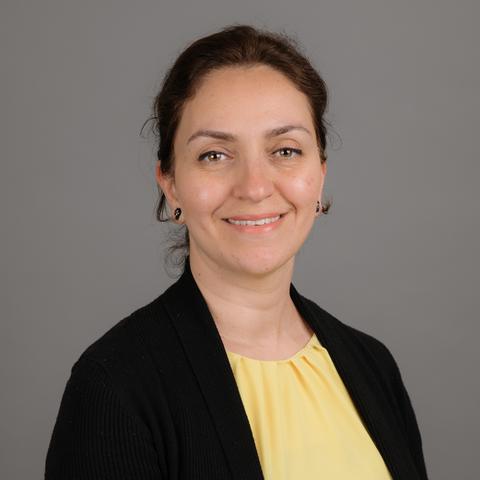
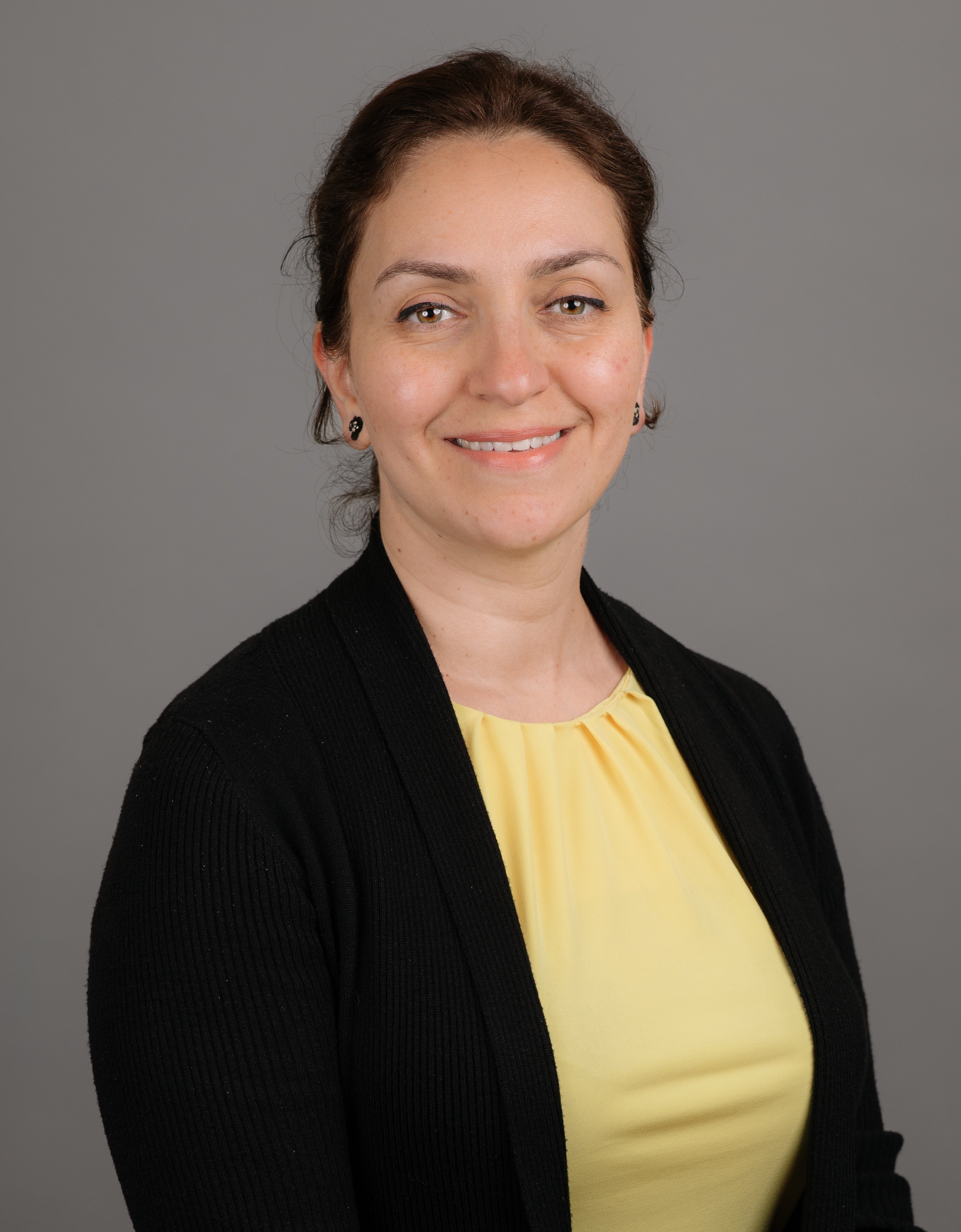
Bio
Professional Associations
- American Academy of Physical Medicine & Rehabilitation (AAPMR)
- Association of Academic Physiatrist (AAP)
- American Association of Neuromuscular & Electrodiagnostic Medicine (AANEM)
- Medical Council of Iran
Clinical Summary
Specialties
- Physical Medicine and Rehabilitation
Board Certifications
- Physical Medicine & Rehabilitation (ABPMR)
Clinical Interests
- Stroke/Neuro rehabilitation
- Spasticity management
- Use of Botulinum Neurotoxins for management of chronic migraine headaches, spasticity, cervical dystonia, sialorrhea and other neurological conditions
- Electromyography
- Amputee management
- Non-traumatic brain injury
Education
Contact
Address
2512 S 7th StMinneapolis, MN 55454-1404
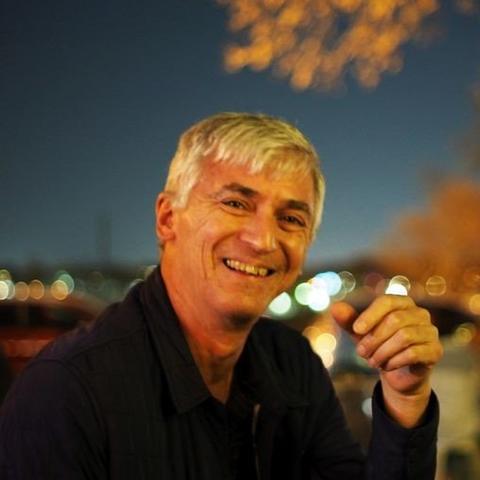
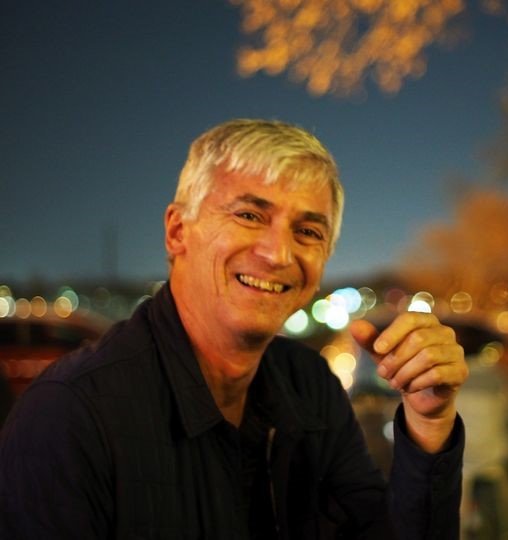
Research Summary
My professional interest is in teaching and investigating the beneficial effects of exercise on health. We initiated a project with two other colleagues to design an electronic method to track physical activity and increase compliance with exercise prescriptions. The main goal is to use this novel tracking method along with behavioral strategies implemented via telehealth to improve cardiorespiratory fitness and overall health in patients with low cardiorespiratory fitness. In addition, I am also interested in assessing the cardiovascular and metabolic clinical applications of natriuretic peptides. Natriuretic peptides may have clinical applications in salt-sensitive hypertension, obesity, diabetes, fatty liver disease, peripheral artery disease, and low cardiorespiratory fitness. Lastly, for the last 15 years, I have been the study physician for several clinical trials at the School of Nursing, evaluating the effects of different exercise training programs on peak walking duration in patients with PAD and individuals with cognitive disorder.
Featured Publications:
1. Sanchez OA, Hesse AS, Betker MR, Lundstrom CJ, Conroy WE, and Gao Z. Cardiovascular Fitness
and Associated Comorbidities In An Executive Health Program. Exercise Medicine. Exercise Medicine
2022; 6:5 https://doi.org/10.26644/em.2022.005
2. Shroff GR, Sanchez OA, Miedema MD, Kramer H, Ix JH, Duprez DA, Jacobs DR Jr. Coronary Artery
Calcium Progresses Rapidly and Discriminates Incident Cardiovascular Events in Chronic Kidney
Disease regardless of Diabetes: Multi-Ethnic Study of Atherosclerosis (MESA). Atherosclerosis 310
(2020) 75–82.
3. Ostovaneh MR, Moazzami K, Yoneyama K, Venkatesh BA, Heckbert SR, Wu CO, Shea SJ, Post WS,
Fitzpatrick AL, Burke GL, Bahrami H, Sanchez OA, Daniels LB, Bluemke DA, Lima JAC. Change in N-
terminal pro-B-type Natriuretic Peptide Level and Risk of Dementia: Multi-Ethnic Study of
Atherosclerosis. Hypertension. 2020 Feb;75(2):316-323.
4. Lim N, Sanchez O, Olson N. Impact of 30-day readmission for cirrhotic patients after an educational
intervention: A pilot study. World Journal of Hepatology. 2019 Oct 27;11(10):701-709.
5. Naim Issa, Sanchez OA, Kukla Aleksandra, Riad SM, Berglund DM, Ibrahim HN, Matas AJ. Weight
gain after kidney donation: Association with increased risk of type 2 diabetes and hypertension. Clinical
Transplantation Clin Transplant. 2018 Sep;32(9).
Current projects:
Implementing a behavioral strategy delivered via telehealth to increase compliance with exercise
prescriptions in a preventive wellness program.
Peripheral Artery Disease (PAD) and brain function. 11/01/21 to 06/31/2023
This is a cross sectional study to evaluate memory and cognitive function in patients with PAD using an
iPad based method, the NIH Toolbox.
Past Projects:
15SDG25360025 (Sanchez). American Heart Association. 07/01/15 - 06/31/18
Use of novel engineered natriuretic peptide (cenderitide) for the treatment of peripheral arterial disease.
This is a randomized clinical trial to assess the effect of natriuretic peptides on walking duration on patients
with peripheral arterial disease and its correlation with MRI-measures of microvascular and mitochondrial
function.
Medical School / University of Minnesota Foundation/Faculty Research and Equipment Awards Program.
12/01/2015 – 12/31/2017. Use of NT-proBNP as a biomarker to treat salt sensitive hypertensive
individuals. To assess the value of NT-proBNP in diagnosing individuals who are at risk salt-sensitive
hypertension.
Vanderbilt General Clinical Research Center support for pilot studies. 02/2005 - 02/2006. Evaluation of
Endothelial Function Using Near Infrared Spectroscopy.
University of Minnesota Center on Aging. Pre doctoral grant. 04/16/99 – 04/15/00. To study the effects of
long-term diabetes mellitus on the contractile properties of skeletal muscle.
University of Minnesota Center for Muscle and Muscle Disorders Muscle. Fellowship Grant. 09/16/99 –
09/15/01. To study the effects of exercise training in rats on the contractile properties of skeletal muscle in
rats with streptozotocin induced long-term diabetes mellitus.
Service Summary
Community Outreach Activities
Dr. Sanchez was involved in organizing a fundraising event to send medicines, medical supplies, and food to Venezuela. He funded a not-for-profit organization called S.O.S Venezuela/MN. He hosted an event in August and collected about $2000 in cash and more in medicines, medical supplies, and food.

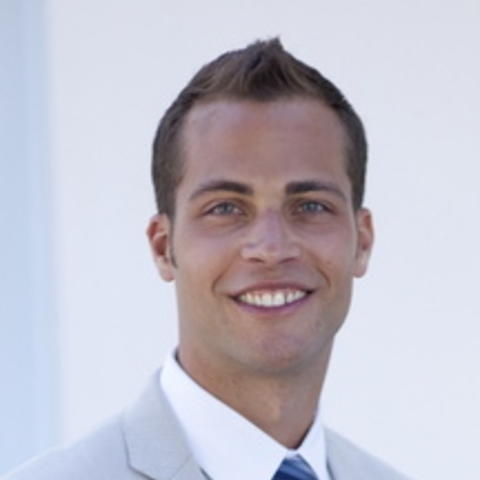
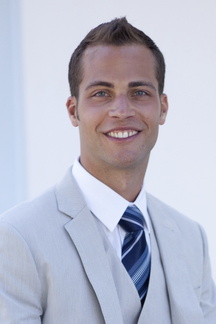
Education
Fellowships, Residencies, and Visiting Engagements
Licensures and Certifications
Honors and Recognition
Professional Memberships
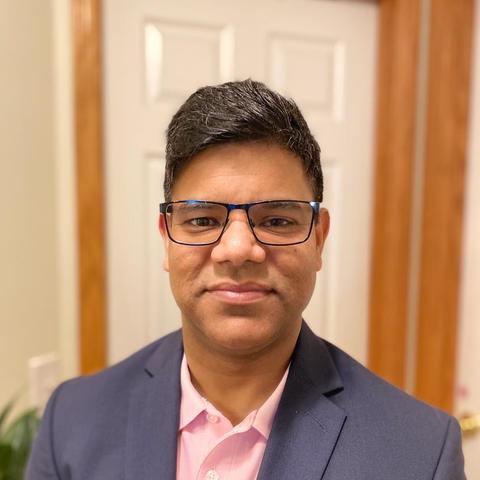
Bio
Dr. Bhairab Singh is an Assistant Professor in the Department of Rehabilitation Medicine, Division of PM&R, Medical School at the University of Minnesota. He received his PhD degree from the Center for Cellular and Molecular Biology, India in the area of Cell Biology and Biochemistry. Dr. Singh's laboratory focuses on studying the molecular regulation of mammalian heart regeneration and cardiovascular disease modeling. His laboratory uses a number of cutting-edge technologies including tissue engineering, stem cell technology and in vivo models.
Honors and Awards
University of Minnesota, USA
- Top Basic Science Abstract Award, American Heart Association, AHA 2019
- Dr. Marvin, and Hadassah Bacaner Research Award in Cardiology 2016
- Best Scientist Award in Cardiovascular Sciences 2016
- Best Post-Doctoral Award in Cardiovascular Sciences 2013
Center for Cellular and Molecular Biology, India
- NMITLI Fellowship, CSIR 2009
- Senior Research Fellowship, CSIR 2008 Bhairab N Singh 2
- Dr. Amjad Rahi Award in Eye Research, LVPEI 2007
- Junior Research Fellowship, CSIR 2006
Jawaharlal Nehru University, India
- Department of Biotechnology Fellowship, DBT, India 2003
- Summer Fellowship at Panacea Biotech Ltd. 2002
Contact
Address
500 Boynton Health Service Bridge | 420 Delaware St SE, MMC 297

Bio
Dr. Singh is a graduate of the University of Minnesota Medical School. Dr. Singh completed his PM&R Residency at Baylor College of Medicine in Houston, TX. Most recently, he completed his Pain Medicine Fellowship here at the University of Minnesota, in the Department of Rehabilitation Medicine's Pain Medicine Fellowship.
Dr. Singh’s academic interests include the education of trainees such as fellows, residents, and medical students. He is further interested in academic programming, mentorship of young physicians, and the ethical practice of medicine.
Clinical Summary
Dr. Singh’s clinical interests include the comprehensive management of pain, focusing specifically on conservative therapy-based and interventional strategies up to and including neuromodulation.
Professional Affiliations:
American Academy of Pain Medicine
North American Neuromodulation Society
American Society of Regional Anesthesia
Texas Pain Society
American Academy of Physical Medicine & Rehabilitation
American Medical Association
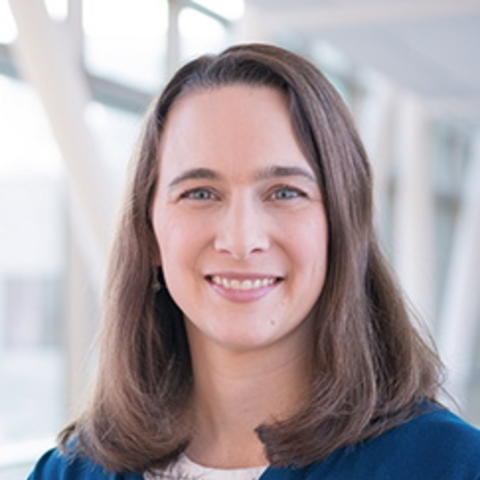
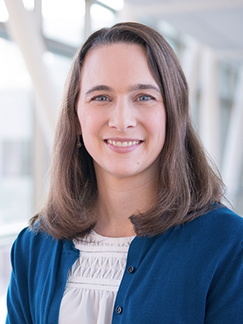
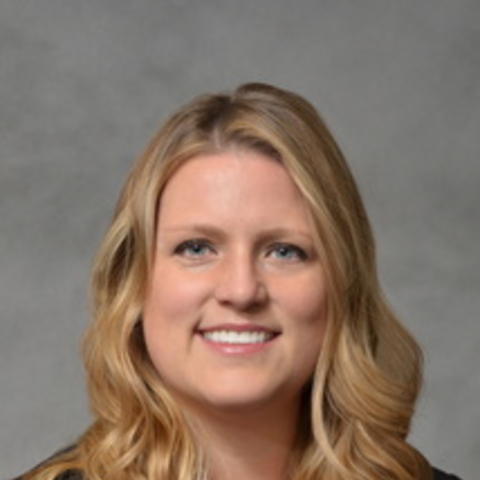
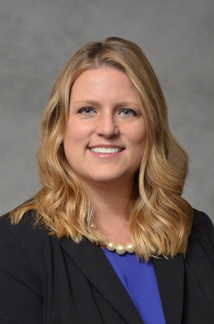
Bio
Professional Associations
- American Academy of Physical Medicine and Rehabilitation (AAPMR)



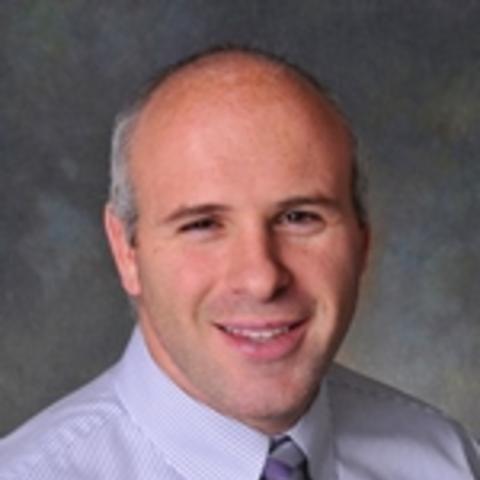
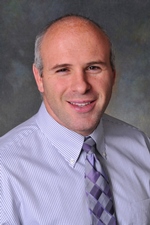
Bio
Professional Associations
- American Academy of Physical Medicine & Rehabilitation (AAPMR)
- Association of Academic Physiatrists (AAP)
- Alliance for Physician Certification & Advancement (APCA)
- American Medical Society for Sports Medicine (AMSSM)
- American Institute of Ultrasound in Medicine
- International Society of Physical and Rehabilitation Medicine (ISPRM)
Research Summary
Research Summary/Interests
- Minimally invasive ultrasound interventions
- Musculoskeletal ultrasound
- Medical education
- Concussion
Teaching Summary
Academic Interests and Focus
As an Assistant Professor at the University of Minnesota, Dr. Tonkin is active in teaching at two affiliated sites, the Minneapolis V.A. and Hennepin County Medical Center (HCMC). He serves as the Residency Program Director for the Division of PM&R.
Clinical Summary
Board Certifications
- Physical Medicine & Rehabilitation (ABPMR)
- Physical Medicine & Rehabilitation (ABPMR) - Brain Injury Medicine
- Registered in Musculoskeletal Ultrasound (RMSK)
Clinical Interests
- TBI
- MSK/Ortho
- ALS
- EMG
Bio
Professional Associations
- American Academy of Clinical Neuropsychology
- American Board of Professional Psychology
- American Psychological Association - Division 40 - Society for Clinical Neuropsychology
- International Neuropsychological Society (INS)
Research Summary
Research Summary/Interests
- Neuropsychological Sequelae of Neurologic Insult
- Language
- Functional Brain Imaging
Teaching Summary
Academic Interests and Focus
As an Assistant Professor at the University of Minnesota, Dr. Waldron is active in training medical students, resident physicians and fellows as well as students enrolled in allied health programs and psychology.
Clinical Summary
Board Certifications
- American Board of Professional Psychology, Clinical Neuropsychology
- Licensed in Minnesota and Iowa
Clinical Interests
Neuropsychological Evaluation of Adults and Adolescents, Specifically: Epilepsy; Neuro-oncology; Stroke; Dementia; Movement Disorders; Traumatic Brain Injury; Multiple sclerosis; Medical illness; Neuropsychiatric disease; Wada examinations
Contact
Address
Mayo D450420 Delaware Street SE
Minneapolis, MN 55455




Bio
Professional Associations
- American Academy of Physical Medicine & Rehabilitation
- American Medical Society for Sports Medicine
- Spine Intervention Society
Research Summary
Publications
- Camp CL, O’Driscoll SW, Wempe MK, Smith J. Sonographic Posterolateral Rotatory Stress Test for Elbow Instability: A Cadaveric Validation Study. PM&R. 2017; 9(3): 275-282.
- Finnoff JT, Bond JR, Collins MS, Sellon JL, Hollman JH, Wempe MK, Smith J. Variability of the Ischiofemoral Space Relative to Femur Position: An Ultrasound Study. PM&R. 2015; 7(9): 930-937.
- Sellon JL, Wempe MK, Smith J. Sonographically Guided Distal Biceps Tendon Injections: Techniques & Validation. Journal of Ultrasound in Medicine. 2014; 33(8): 1461-1474.
- Smith J, Wisniewski SJ, Wempe MK, Landry BW, Sellon JL. Sonographically Guided Obturator Internus Injections: Techniques & Validation. Journal of Ultrasound in Medicine. 2012; 31(10): 1597-1608.
- Wempe MK, Sellon JL, Sayeed YA, Smith J. Feasibility of First Metatarsophalangeal Joint Injections for Sesamoid Disorders: A Cadaveric Investigation. PM&R. 2012; 4(8): 556-560.
Presentations
- Wempe MK, Kirk KM, Mogonye JA. Little Giants – A Big Injury in a Small Football Player. 2017 AMSSM 26th Annual Meeting; San Diego, CA, May 2017.
- Wempe MK, Sinner A. Missed on Initial Imaging – Rare Head and Neck Injury: A Case Report. 2016 AAPM&R Annual Assembly; New Orleans, LA, October 2016.
- Wempe MK, Greer SA. An Unusual Case of Bilateral Ankle Pain in a Ballet Dancer. 2015 AMSSM 24th Annual Meeting; Hollywood, FL, April 2015.
- Sellon JL, Wempe MK, Sayeed YA, Smith J. Feasibility of First Metatarsophalangeal Joint Injections for Sesamoid Disorders: A Cadaveric Investigation. 2012 AMSSM 21st Annual Meeting; Atlanta, GA, April 2012.
- Sellon JL, Finnoff JT, Hollman JH, Wempe MK, Smith J. Variability of the Ischiofemoral Space Relative to Femur Position: An Ultrasound Study. 2012 AIUM Annual Convention; Phoenix, AZ, March 2012.
- Tinguely JJ, Wempe MK. Celebrations and Ceremonies on the Pine Ridge Reservation. Beyond Borders Medical Student Poster Session; Sioux Falls, SD, February 2009.
Clinical Summary
Board Certifications
- Physical Medicine & Rehabilitation (ABPMR)
- Physical Medicine & Rehabilitation (ABPMR) - Sports Medicine
Clinical Interests
Spine care; musculoskeletal injuries; biomechanics; sports medicine; fluoroscopic-guided injections; ultrasound-guided injections; regenerative medicine
Bio
Dr. Whiteside has been a clinical faculty member at the University of Minnesota since January 2020, after working in clinical and academic settings in Iowa, Chicago, and Seattle. Dr. Whiteside is a native Midwesterner, who serves as the Program Director for the Clinical Neuropsychology Residency program. He is actively involved in clinical neuropsychological practice, teaching, research, and community service. His research interests focus primarily on performance validity tests, personality assessment measures in neuropsychological assessment, and long term cognitive and emotional outcomes of COVID-19 infection. He is a member of the editorial board for The Clinical Neuropsychologist and has served as a peer reviewer for several neuropsychological and psychological journals. In addition to his work as Program Director of the postdoctoral fellowship in clinical neuropsychology, Dr. Whiteside has considerable previous experience with training program development, which includes establishing a postdoctoral residency at the University of Iowa, developing a doctoral-level neuropsychology concentration, establishing a doctoral-level on-campus training clinic, and serving as a member of the Board of Directors for a large multidisciplinary medical practice.
He is currently President-Elect and a board member for the Association of Postdoctoral Programs in Clinical Neuropsychology (APPCN). Previously as Chair of the AACN Student Affairs Committee, he developed numerous student-focused programs for AACN including leading the first comprehensive survey of neuropsychology trainees. As part of his role as a Professor, his passion is to facilitate exceptional doctoral and postdoctoral training in neuropsychology while providing high-quality neuropsychological services to adults from diverse backgrounds with a wide range of neurological and psychiatric conditions.
- What do you love most about teaching?
My biggest joy in teaching is having the opportunity to mentor and teach clinical neuropsychology to the next generation of professionals. I find the give and take of teaching bright, dedicated students and residents extremely rewarding and enriching to me. I consider myself a lifelong learner, and I try to convey that sentiment in every teaching moment.
- What do you love most about Minnesota?
There are so many things to love about Minnesota, it's hard to say just one thing. That being said, the people of Minnesota make it such an amazing place to live and work. Minnesotans are truly kind, caring, and dedicated individuals who make it a pleasure to come to work every day.
Fun fact about you:
In addition to my work as a neuropsychologist, I am an avid jazz and classical musician and play in several bands around town. I also enjoy hiking, biking, amateur astronomy, and travel, particularly to national parks where my wife and I have a “bucket list” goal to see every unit within the National Park Service.
Professional Associations
- American Academy of Clinical Neuropsychology (AACN)
- Chair, Student Affairs Committee, 2013–2018
- Chair - The Clinical Neuropsychologist Student Paper Competition Subcommittee, 2018-present
- Member, Student Affairs Committee-2008-present
- Program Committee Reviewer-2014-2017
- Practicum Guidelines Task Force-2014-15
- Mentoring Program-Mentor-2017-present
- American Board of Clinical Neuropsychology/American Board of Professional Psychology
- Work Sample Reviewer, 2000–2019
- ABCN Written Examination Item Writing Committee-2018-2019
- American Psychological Association (APA)
- Division 40 - Society for Clinical Neuropsychology
- Presidential Advisory Team for Tony Puente-2015-17
- American Psychological Foundation Reviewer (Benton-Meier Scholarships) 2015-present
- Commission on Accreditation (CoA)-Accreditation Doctoral Site Vis
Research Summary
Publications
I. Peer-Reviewed Publications
Basso, M.R., Whiteside, D.M., Combs, D., Paul Woods, S., Alden, E., Tobin, O., & Arnett, P. (submitted). Memory in multiple sclerosis: A reappraisal using the item specific deficit approach. Manuscript submitted to Neuropsychology. Role: A, E-F, H-I. Impact Factor: 2.477, Citations: NA.
*Guidotti Breting, L.M., Towns, S.J., Butts, A. M., Brett, B.L., Leaffer, E.B., & Whiteside, D.M. (in revision). 2020 COVID-19 American Academy of Clinical Neuropsychology (AACN) Student Affairs Committee Survey of Neuropsychology Trainees. Manuscript submitted to The Clinical Neuropsychologist. Role: A-F, H-I, Impact Factor: 2.006, Citations: NA
*Boress, K., Gaasedelen, O.J., Croghan, A., King, M., Caraher, K., Basso, M.R., & Whiteside, D.M. (in revision). Replication and cross validation of the Personality Assessment Inventory (PAI) Cognitive Bias Scale (CBS) in a mixed clinical sample. Manuscript submitted to Assessment. Role: A-I. Impact Factor: 3.197, Citations: NA.
Hoffmeister, J., Basso, M.R.,Combs, D., & Whiteside, D.M., (in revision). Differential effects of anhedonia and depressed mood upon verbal learning among people with multiple sclerosis. Manuscript submitted to The Journal of Clinical and Experimental Neuropsychology. Role: Role: A, F-I. Impact Factor: 1.994. Citations: NA.
Whiteside, D.M., Hunt, I., Choate, A., Caraher, K., & Basso, M.R. (2020). Stratified performance on the TOMM is associated with differential responding on the Personality Assessment Inventory (PAI). The Journal of Clinical and Experimental Neuropsychology, 42(2), 131-141, DOI: 10.1080/13803395.2019.1695749. Role: A-I. Impact Factor: 1.994, Citations: 1.
Whiteside, D.M., Caraher, K., Hahn-Ketter, A.E., Gaasedelen, O. & Basso, M.R. (2019). Classification accuracy of individual and combined executive functioning embedded performance validity measures in mild traumatic brain injury. Applied Neuropsychology: Adult, 26(5), 472-481. Role: A-I. Impact Factor: 1.548, Citations: 4.
*Gaasedelen, O.J., Whiteside, D.M., Altmaier, E., Welch, C., & Basso, M.R. (2019). The construction and initial validation of the Cognitive Bias Scale (CBS) for the Personality Assessment Inventory (PAI). The Clinical Neuropsychologist, 33(8), 1467-1484. Role: A-D, F-I Impact Factor: 2.006, Citations: 4.
Mulligan, R., Basso, M.R., Lau, L., Reynolds, B.,Whiteside, D.M., Combs, D. & Bornstein, R.A. (2019). Validity of the Verbal Concept Attainment Test in multiple sclerosis. The Journal of Clinical and Experimental Neuropsychology, 41(4), 331-340. Role: A, F-I. Impact Factor: 1.994, Citations: 0.
Reynolds, B.W., Basso, M.R., Miller, A.K., Whiteside, D.M. & Combs, D. (2019). Executive function, impulsivity, and risky behaviors in young adults. Neuropsychology, 33(2), 212-221. Role: A, F-I. Impact Factor: 2.477, Citations: 9.
*Miller, M. L., Luu, H., Gaasedelen, O., Hahn-Ketter, A., Elmore, A., Dezhkam, N., Bayless, J., Moser, D. J., & Whiteside, D.M. (2019). Long-term cognitive and psychological functioning in post-electroconvulsive therapy (ECT) patients. Journal of ECT, 35(1), 27-34. Role: A-C, D-I. Impact Factor: 2.280, Citations: 4.
*Persinger, V.C.,Whiteside, D.M., Bobova, L., Saigal, S., Vannucci, M.J., & Basso, M.R. (2018). Using the California Verbal Learning Test, Second Edition as an embedded performance validity measure among individuals with TBI and individuals with psychiatric disorders. The Clinical Neuropsychologist, 32(6), 1039-1053. Role: A-I. Impact Factor: 2.006, Citations: 12.
Lau, L., Basso, M.R., Estevis, E., Miller, A., Whiteside, D.M., & Combs, D. (2017). Detecting coached neuropsychological dysfunction: A simulation experiment regarding mild traumatic brain injury. The Clinical Neuropsychologist, 31, 1412-1431. Role: A-B, F-I. Impact Factor: 2.006, Citations: 9.
*Gaasedelen, O, Whiteside, D.M., & Basso, M. (2017). Exploring the relationship between the Personality Assessment Inventory validity scales and performance validity tests in a mixed outpatient sample. The Clinical Neuropsychologist, 31(5), 844-856. Role: A-E, G-I. Impact Factor: 2.006, Citations: 4.
Vannucci, M., Whiteside, D.M., Saigal, S., Nichols, L., & Hileman, S. (2017). Predicting Supervision Outcomes: What’s different about psychological assessment supervision? Australian Psychologist, 52, 114-120. Role: A-F, H-I. Impact Factor: 1.412, Citations: 9.
Tracy, V.L., Basso, M.R., Marson, D., Combs, D., & Whiteside, D.M. (2017). Capacity for financial decision making in multiple sclerosis. Journal of Clinical and Experimental Neuropsychology, 39, 46-57. Role: A-B, F-I. Impact Factor: 1.994, Citations: 9.
Whiteside, D.M., Guidotti-Breting, L.M., Butts, A.M., Hahn-Ketter, A.E., Osborn, K., Towns, S.J., Barisa, M., Santos, O.A., & Smith, D. (2016). 2015 American Academy of Clinical Neuropsychology (AACN) Student Affairs Committee Survey of neuropsychology trainees. The Clinical Neuropsychologist, 30(5), 664-694. Role: A-I. Impact Factor: 2.006, Citations: 5.
*Hahn-Ketter, A.E.,Whiteside, D.M., Pliskin, N., & Rice, L. (2016). Long term consequences of electrical injury: Neuropsychological predictors of adjustment. The Clinical Neuropsychologist, 30(2), 216-227. Role: A-F, H-I. Impact Factor: 2.006, Citations: 4.
Whiteside, D.M., Kealey, T., Semla, M., Luu, H., Rice, L., Basso, M., & Roper, B. (2016). Verbal Fluency: Language or executive function measure? Applied Neuropsychology: Adult, 23, 29-34. Role: Lead author, designed study, ran statistics, wrote results and discussion, revised manuscript. Impact Factor: 1.548, Citations: 143.
Nelson, A.P., Roper, B.L., Slomine, B.S., Morrison, C., Greher, M.R., Janusz, J., Larson, J.C., Meadows, M., Ready, R.E., Rivera-Mindt, M., Whiteside, D.M., Willment, K., & Wodushek, T.R. (2015). Official Position of the American Academy of Clinical Neuropsychology (AACN) Guidelines for Practicum Training in Clinical Neuropsychology. The Clinical Neuropsychologist, 29(7), 879-904. Role: F-I. Impact factor: 2.006, Citations: 13.
Whiteside, D.M., Gaasedelen, O., Hahn-Ketter, A., Luu, H., Miller, M., Persinger, V., Rice, L., & Basso, M.R. (2015). Derivation of a cross-domain embedded performance validity measure in mild and severe traumatic brain injury. The Clinical Neuropsychologist, 29, 788-803. Role: A-I. Impact Factor: 2.006, Citations: 14.
Whiteside, D.M., Kogan, J., Wardin, L., Phillips, D., Franzwa, M.G., Rice, L., Basso, M., & Roper, B. (2015) Language-based measures as embedded performance validity tests in a mild traumatic brain injury sample. Journal of Clinical and Experimental Neuropsychology, 37, 220-227. Role: A-I. Impact Factor: 1.994, Citations: 28.
*Busse, M., Whiteside, D.M., Waters, D., Hellings, J. & Ji, P. (2014). Exploring the reliability and factor structure of the Personality Assessment Inventory in a neuropsychological population. The Clinical Neuropsychologist, 28, 237-251. Role: A-F, H-I. Impact Factor: 2.006, Citations: 11.
Callahan, J.L., Gustafson, S., Misner, J., Paprocki, C.M., Sauer, E.M., Saules, K., Schwartz, J., Swift, J.K., Whiteside, D.M., Wierda, K., & Wise, E. (2014). Introducing the Association of Psychology Training Clinics’ Collaborative Research Network: A study on client expectancies. Training and Education in Professional Psychology, 8, 95-104. Role: A-D, F, H, I. Impact Factor: 1.028, Citations: 30.
*Busse, M., & Whiteside, D.M. (2012). Detecting suboptimal cognitive effort: Classification accuracy of multiple attention measures. The Clinical Neuropsychologist, 26, 675-687. Role: A-I. Impact Factor: 2.006, Citations: 43.
Whiteside, D.M., Galbreath, J., Brown, M., & Turnbull, J. (2012). Differential response patterns on the Personality Assessment Inventory (PAI) in compensation seeking and non-compensation seeking mild traumatic brain injury patients. The Journal of Clinical and Experimental Neuropsychology, 34, 172-182. Role: A-I. Impact Factor: 1.994, Citations: 26.
Whiteside, D.M., Wald, D., & Busse, M. (2011). Classification accuracy of multiple visual spatial measures in the detection of suspect effort. The Clinical Neuropsychologist, 25, 287-301. Role: A-I. Impact Factor: 2.006, Citations: 36.
*Hellings, J.R., Whiteside, D. M., & Cryzy, J. (2011). Homelessness, compensation-seeking, and response styles on the Personality Assessment Inventory. The Journal of Personality Assessment, 93, 266-269. Role: A-G, H-1. Impact Factor: 2.929, Citations: 2.
Whiteside, D. M., Hellings, J., & Brown, J. (2010). The impact of left temporal lobe seizure disorder on learning disorder: A case study. The Clinical Neuropsychologist, 24, 1026-1044. Role: A-I. Impact Factor: 2.006, Citations: 2.
Whiteside, D. M., Zimberoff, A., Stroemel, J., Clinton, C., White, C., Diamonti, C., & Waters, D., (2010). Relationship between suboptimal cognitive effort and the clinical scales of the Personality Assessment Inventory. The Clinical Neuropsychologist, 24, 315-325. Role: A-I. Impact Factor: 2.006, Citations: 21.
Whiteside, D. M., Dunbar-Mayer, P., & Waters, D. (2009). Relationship between TOMM performance and PAI validity scales in a mixed clinical sample. The Clinical Neuropsychologist, 23, 523–53. Role: A-I. Impact Factor: 2.006, Citations: 41.
Whiteside, D. M., Padula, M. J., Jeffrey, L. K., & Zetterman, R. (1996). Cognitive screening with the Neurobehavioral Cognitive Status Examination in a chronic liver disease population. The Clinical Neuropsychologist, 10, 359–363. Role: A-I. Impact Factor: 2.006, Citations: 10.
Contact
Address
Mayo C667Minneapolis, MN 55455-0341
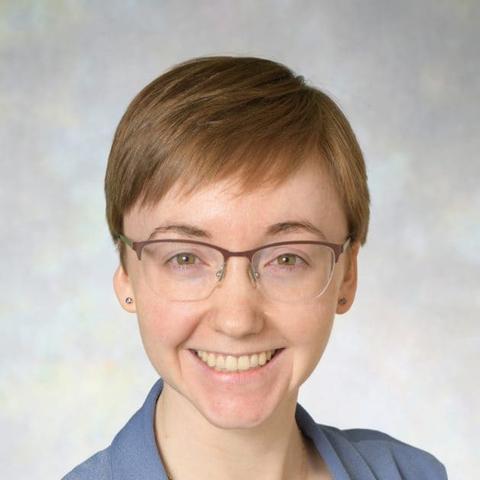
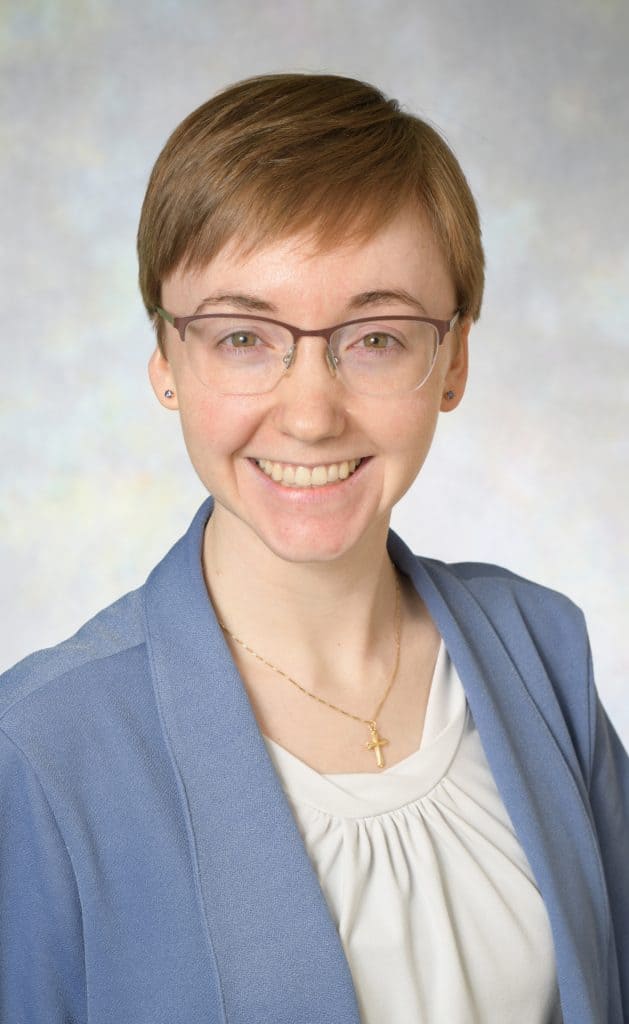
Bio
Dr. Wineman is a board-certified Physical Medicine and Rehabilitation physician who treats patients with a wide variety of diagnoses that limit function and independence. She completed sub-specialty fellowship training in spasticity management.


Bio
Dr. Liang Ye works and lives in Minneapolis with his son RJ, who was born in Minneapolis in May 2023. Dr. Ye received rigorous training in bone biology and got his Ph.D. at Harvard University. During this period, he performed bone biology projects using molecular biology tool, cell biology tool and genetics tool. Dr. Ye also has research experience in craniofacial biology. He continued to further his research abilities at The Forsyth Institute doing research as well as developing original research ideas when serving as a research assistant and then postdoc research fellow.
At the University of Minnesota Department of Rehabilitation Medicine, Dr. Ye is an Assistant Professor. His research covers balancing between osteogenesis and adipogenesis and orofacial rehabilitation & TMD. Recently his work has been published by highly ranked journals such as Nature Genetics and IJOS, and he is the corresponding author.
Research Summary
Research Summary/Interests
- Orofacial rehabilitation & TMD
- Osteoclast differentiation & activity
- Balancing between osteogenesis and adipogenesis
Funding & Grants
The Minnesota TMD IMPACT Collaborative: Integrating Basic/Clinical Research Efforts and Training to Improve Clinical Care
R34 1R34DE033580-01: NIH/NIDCR
Role: Project PI
Federal Award Date: 09/19/2023
PVA23_R_00071: Paralyzed Veterans of America Research Foundation
Role: Co-Investigator
01/01/2023 – 01/01/2025
Validation of hsa-MiR-19a-3p and hsa-MiR-19b-3p as novel biomarkers of SCI-induced neuropathic pain
25084 - Orofacial Rehabilitation and Craniofacial Biology Research Fund
Role: PI
until 01/01/2027
24513 - Rehabilitation Medicine Translational Medicine Research Fund
Role: PI
until 01/01/2026
R01 AR064793-01A1: NIH/NIAMS
Role: Co-Investigator
04/01/2021 – 03/31/2022
Regulation of gastric and osteoclast acidification by Snx10




